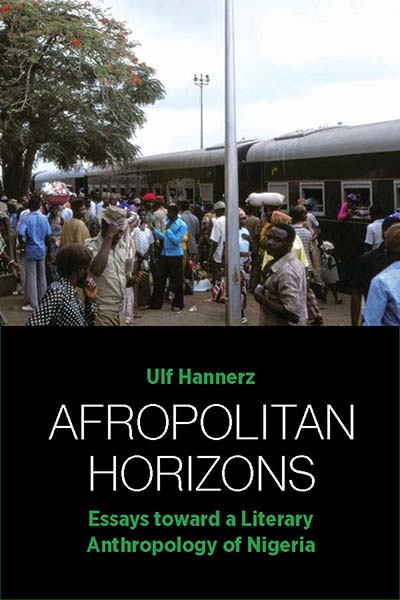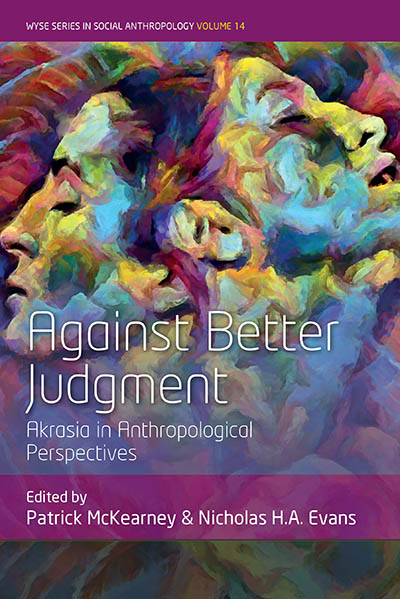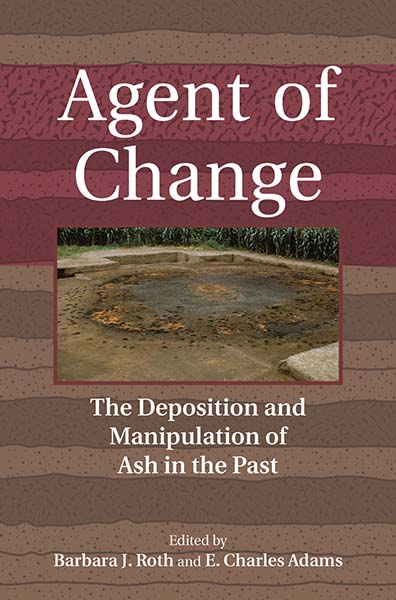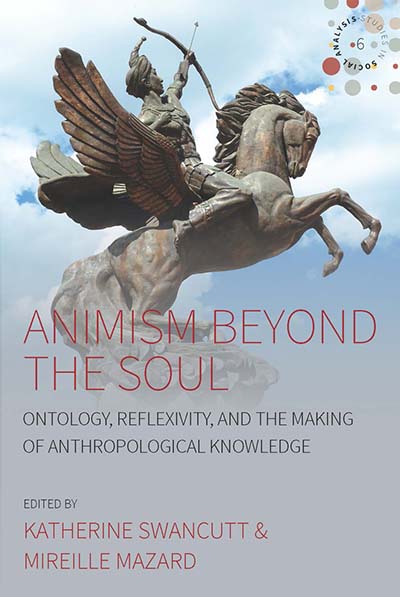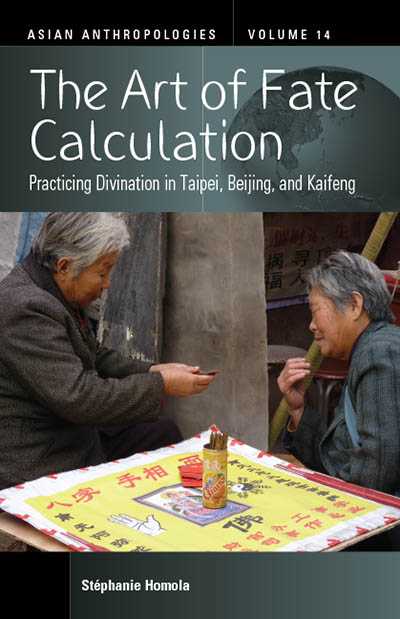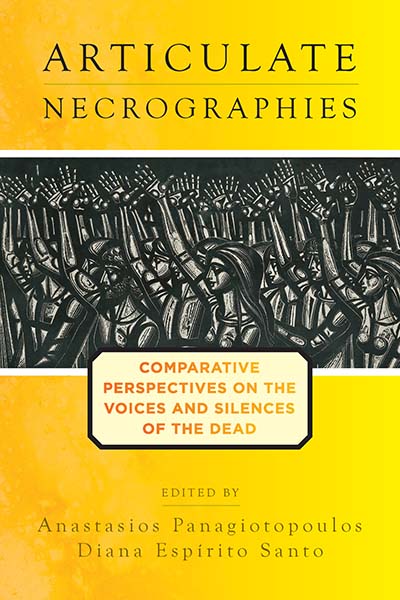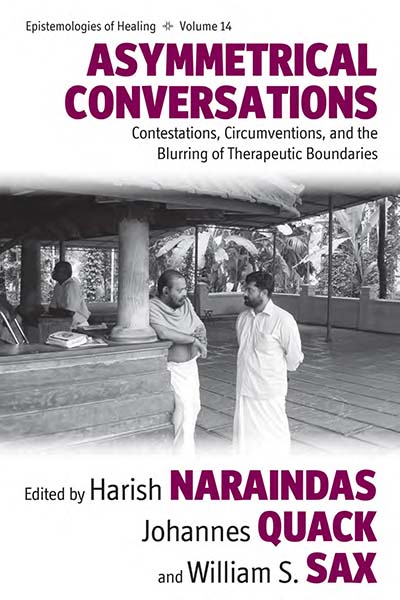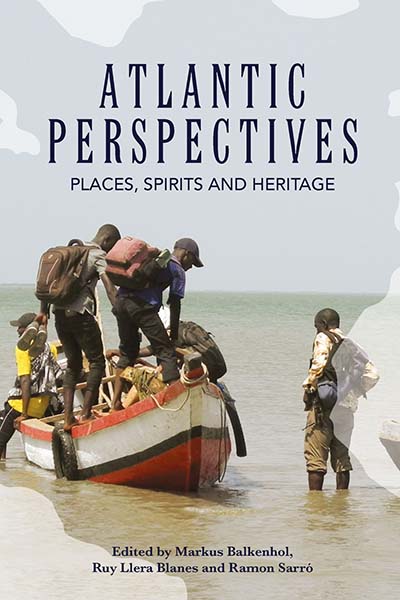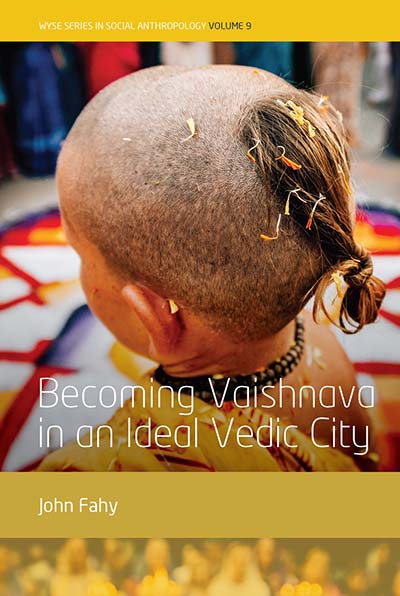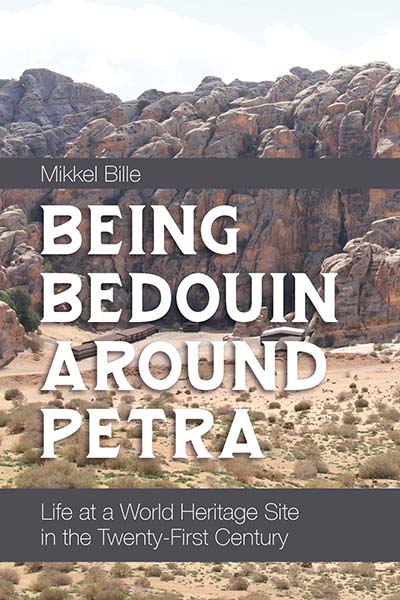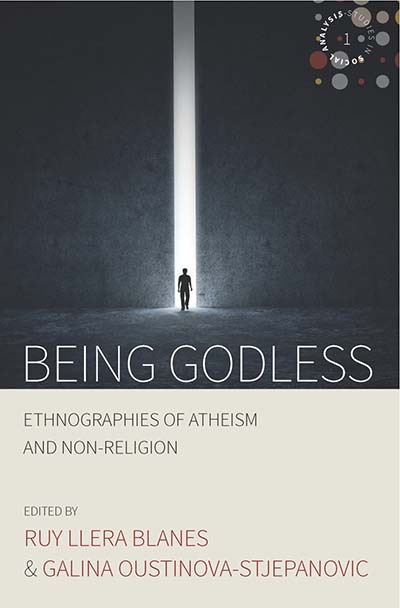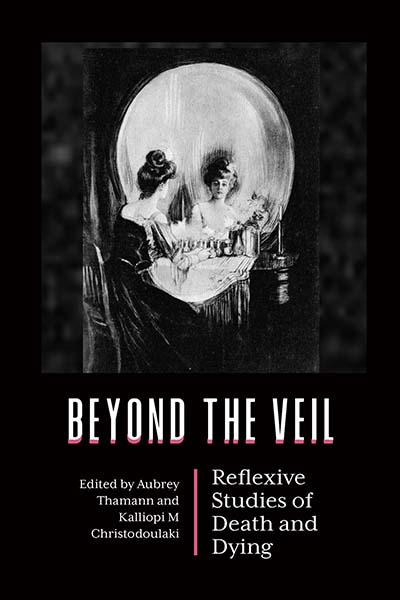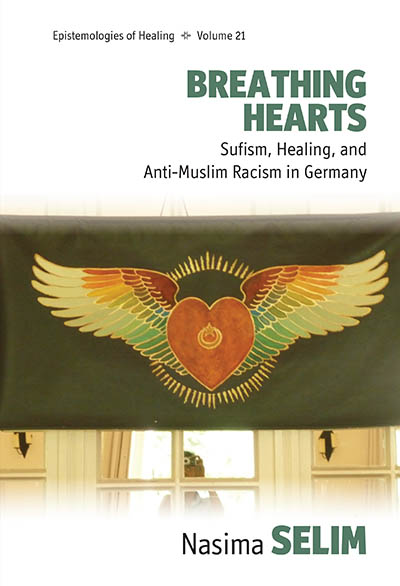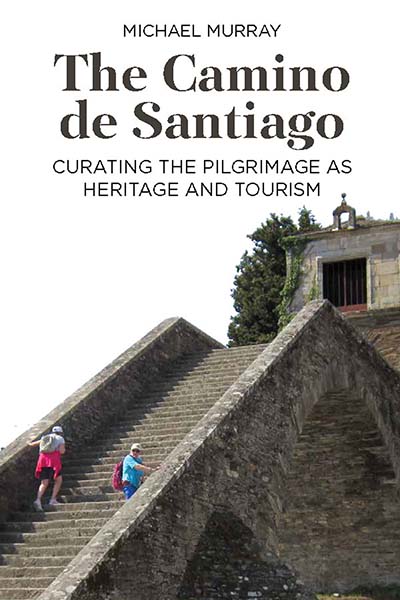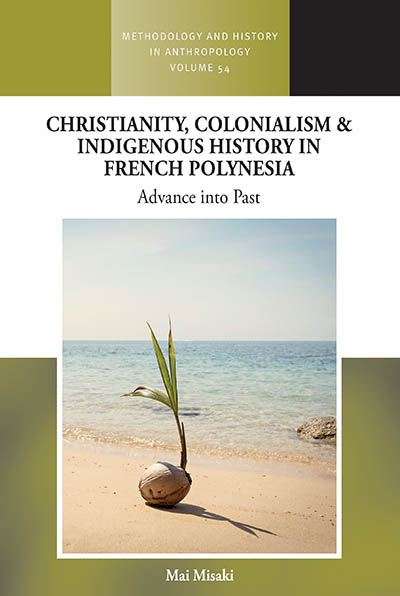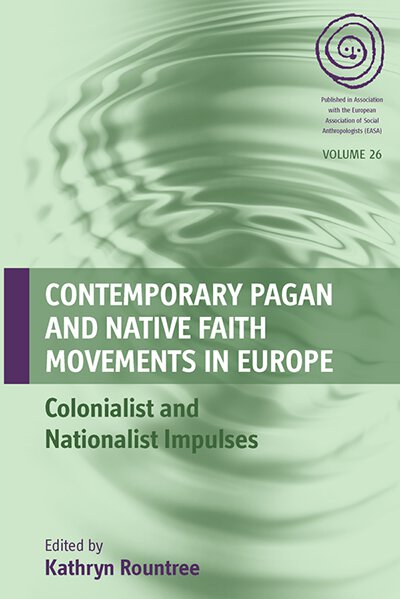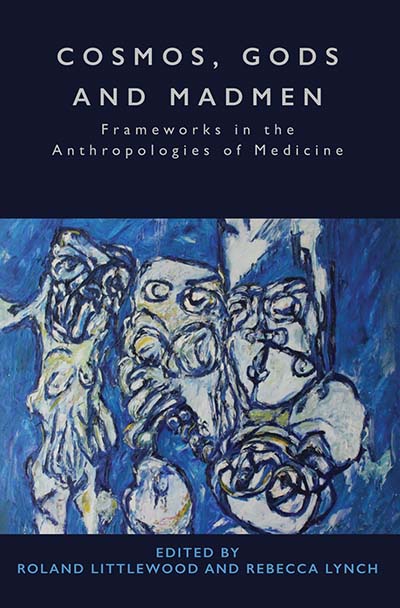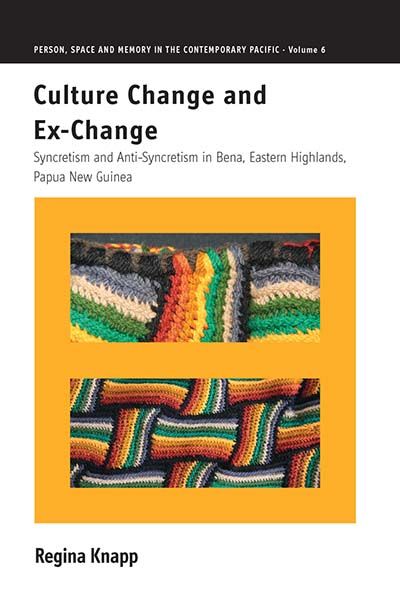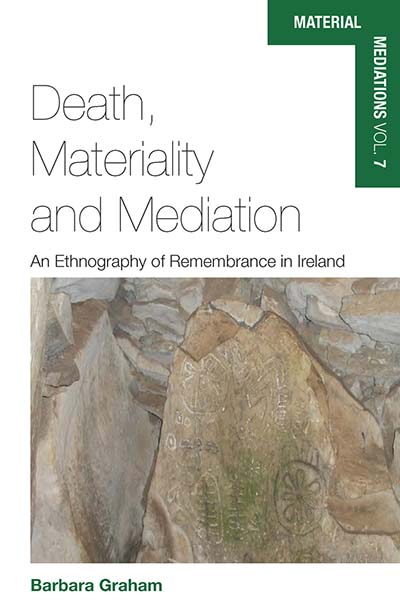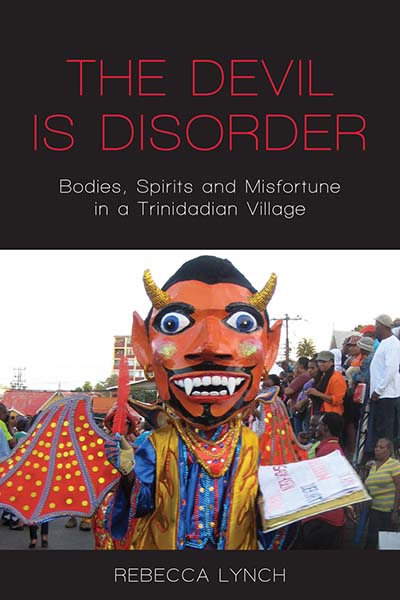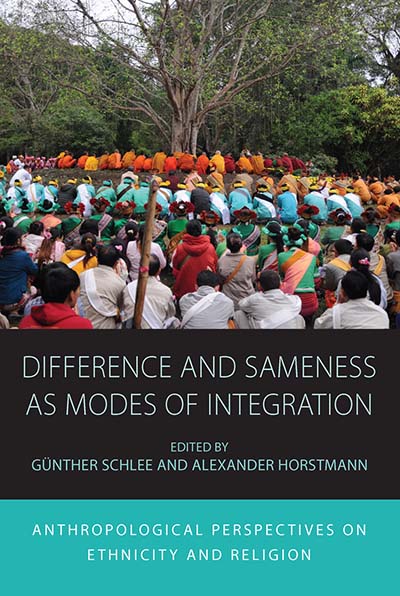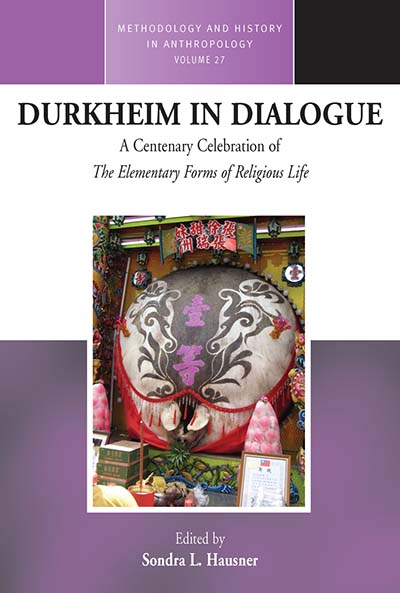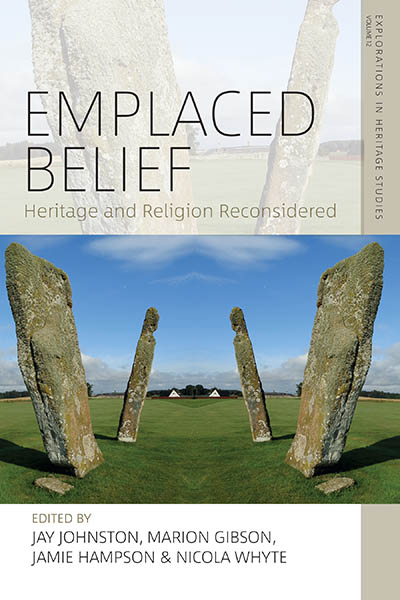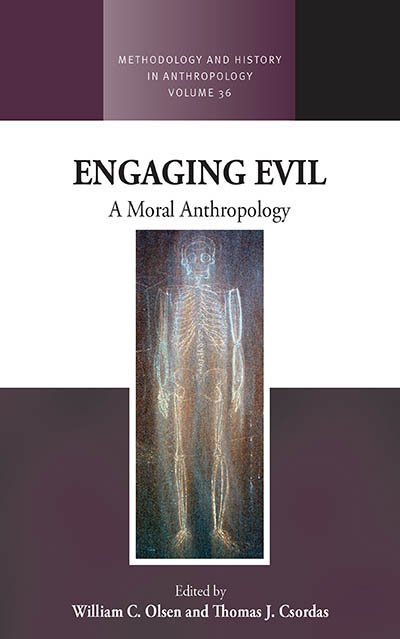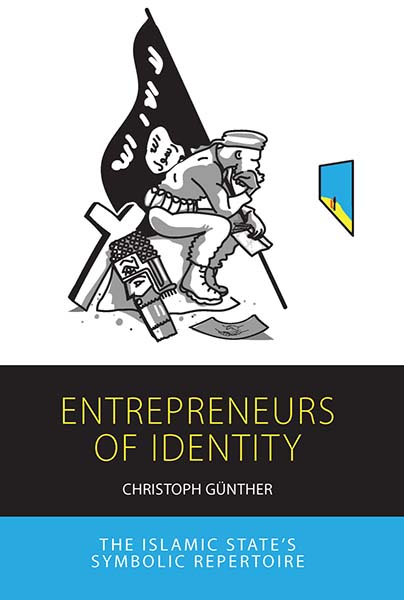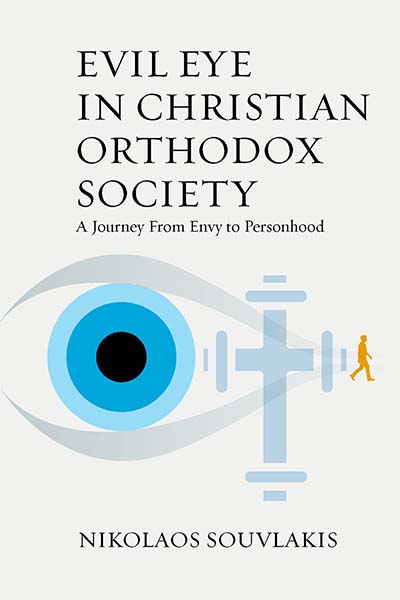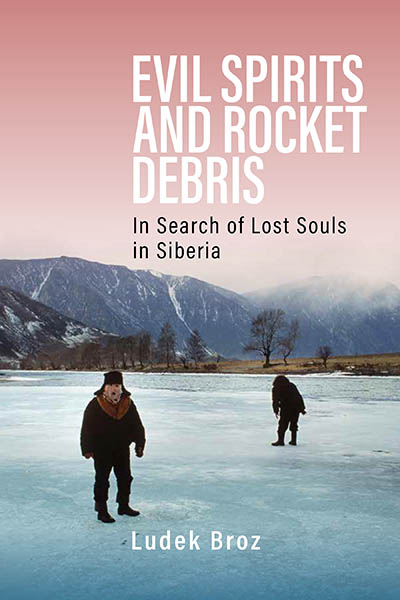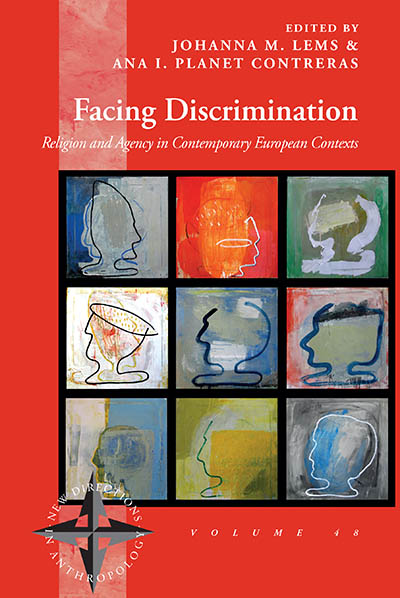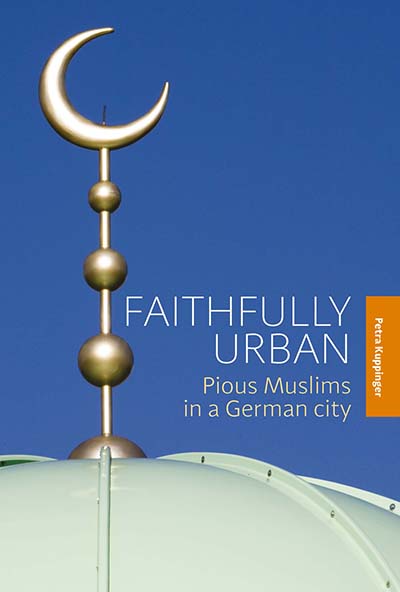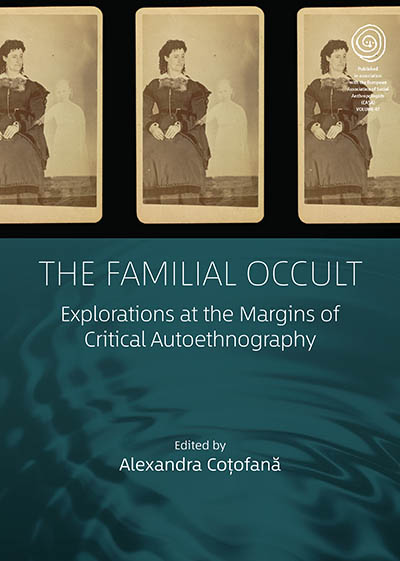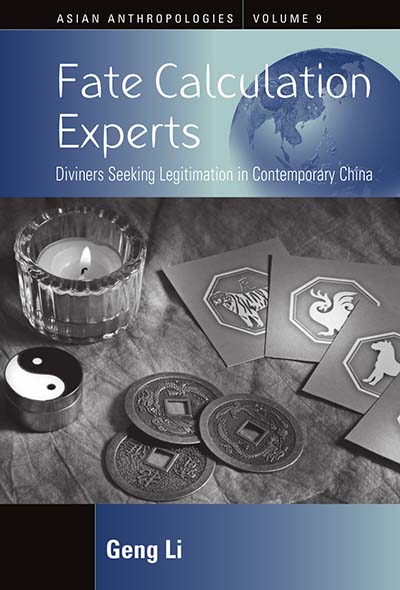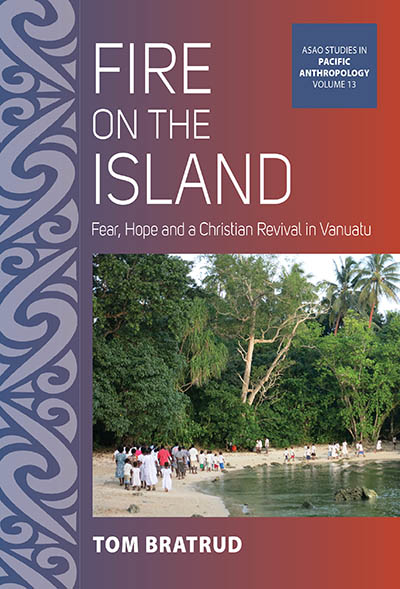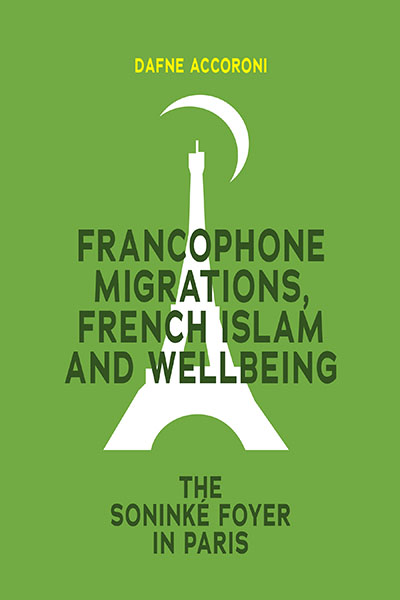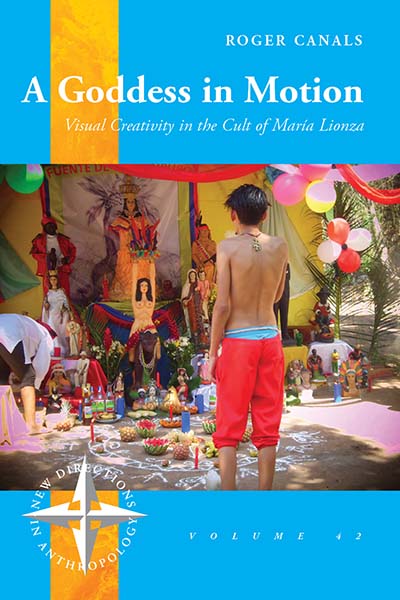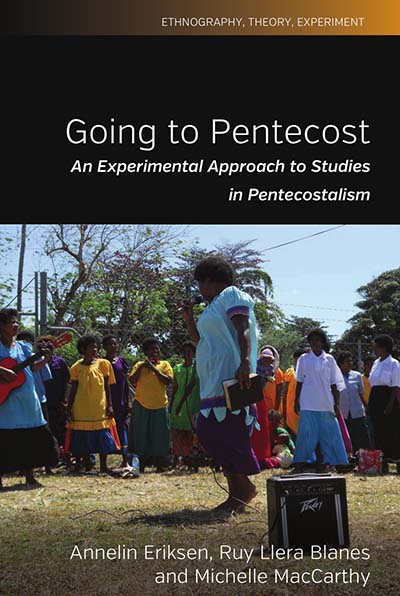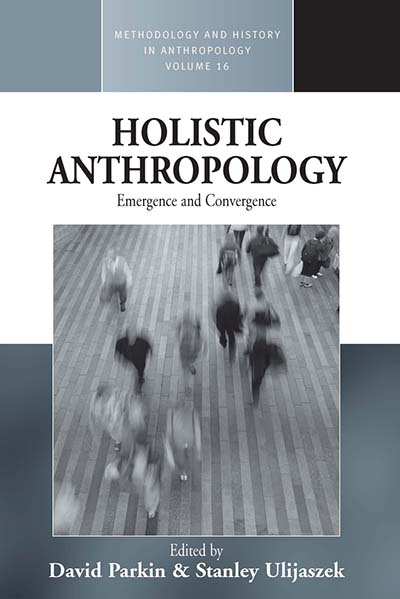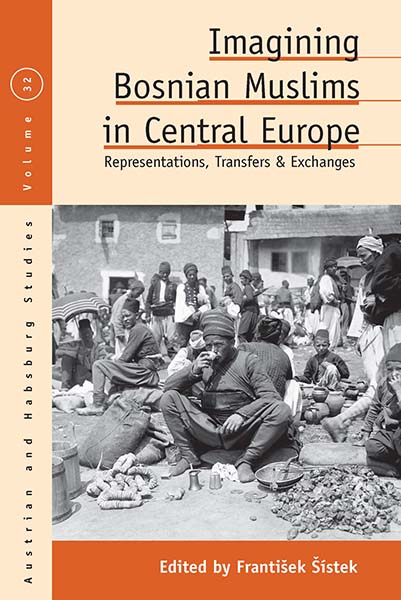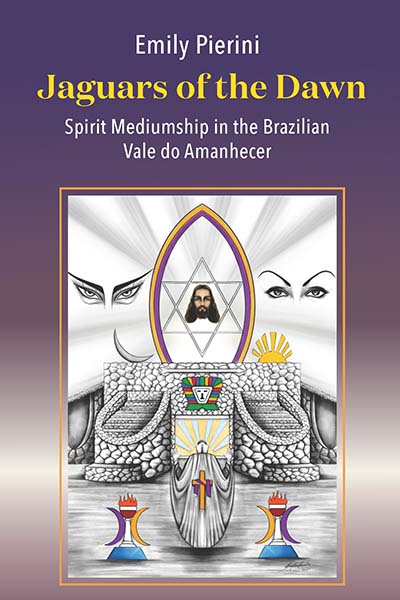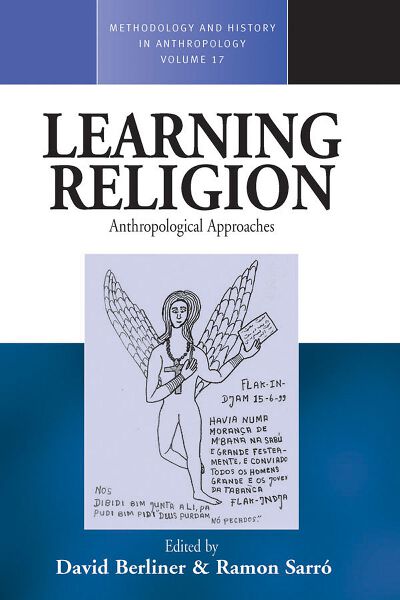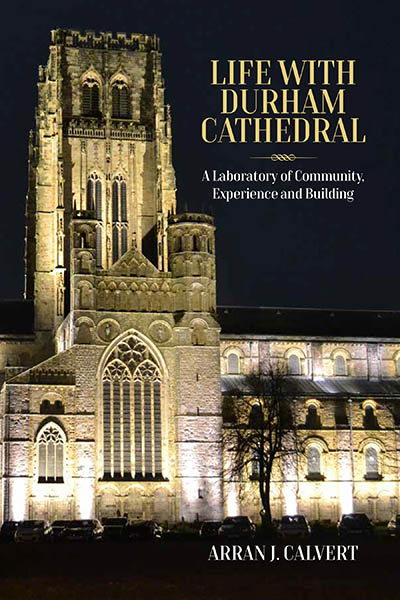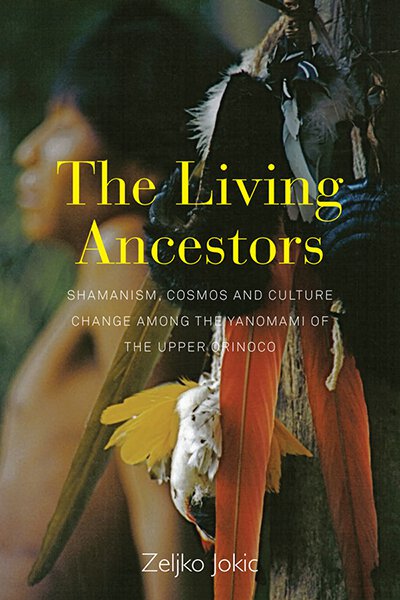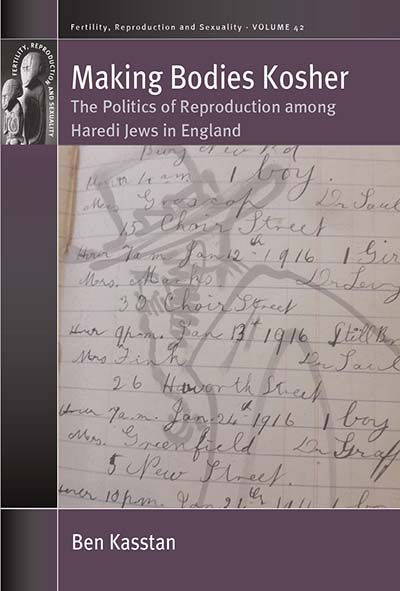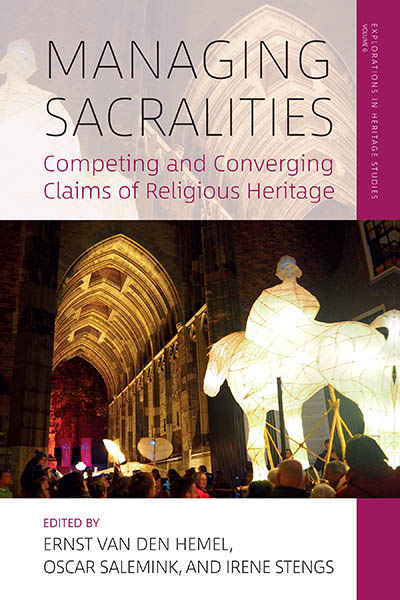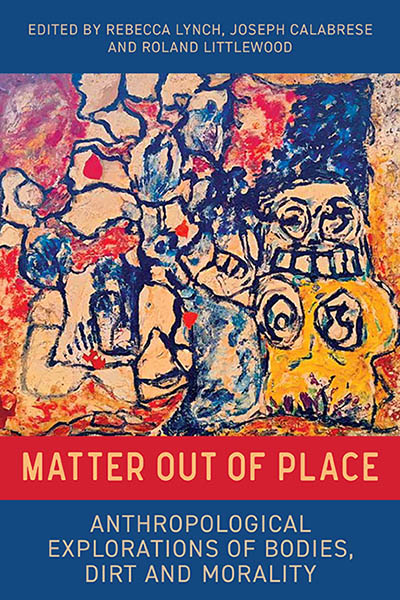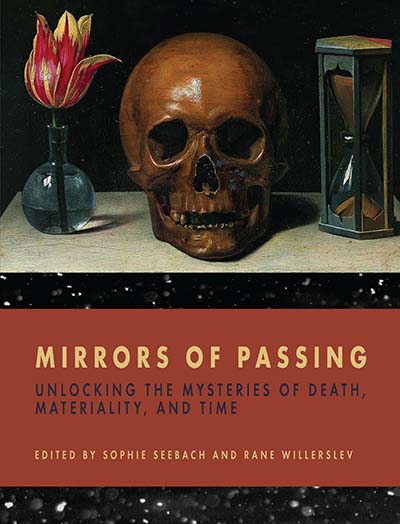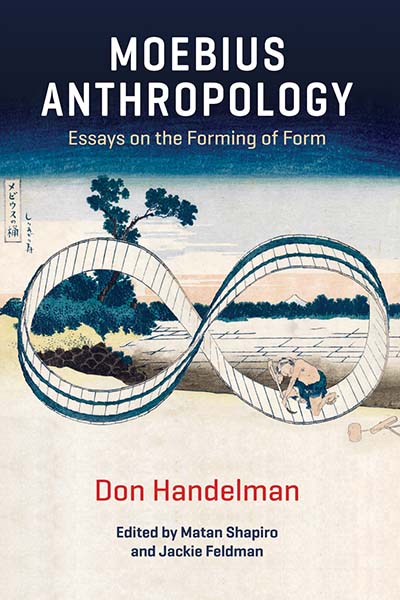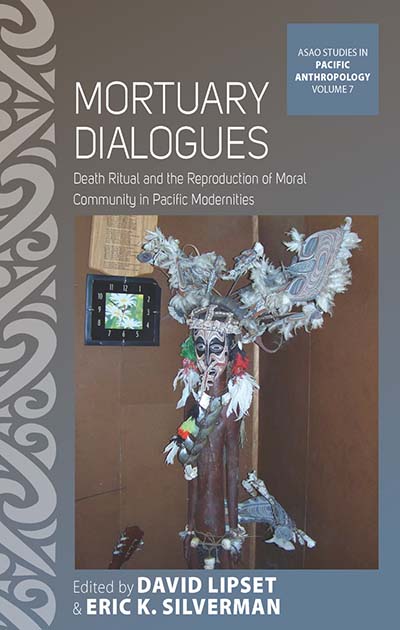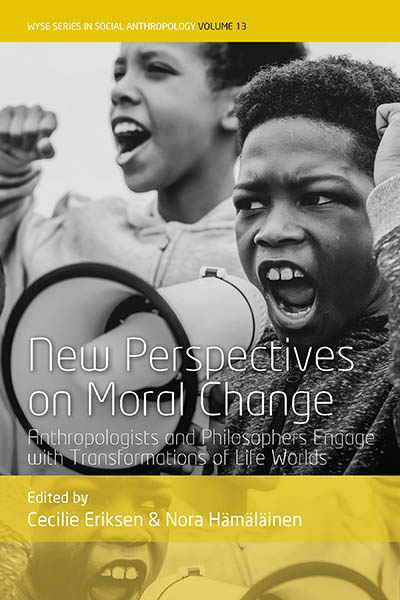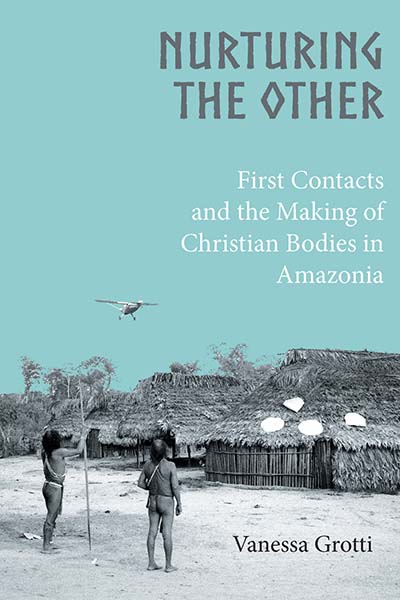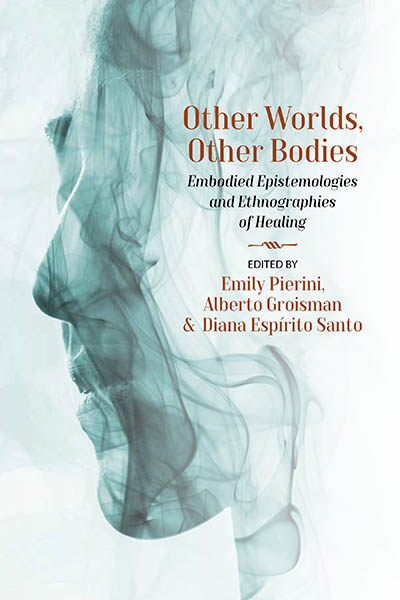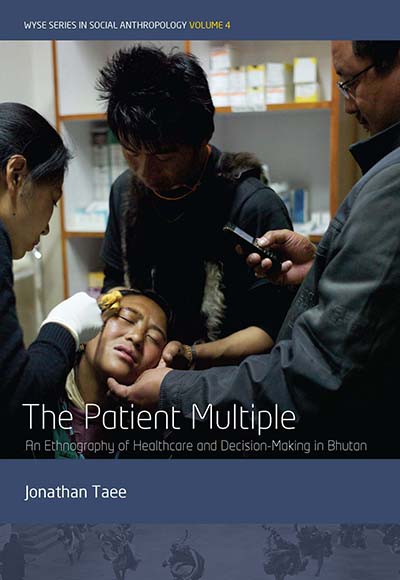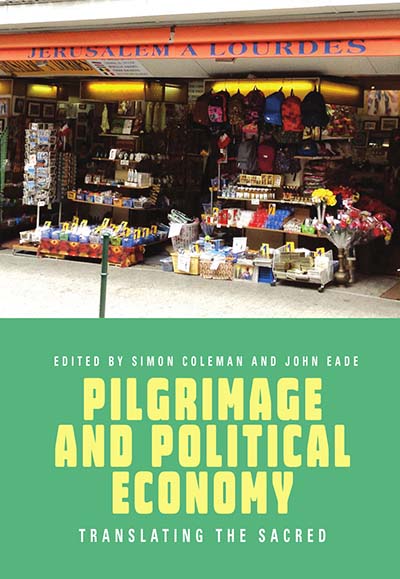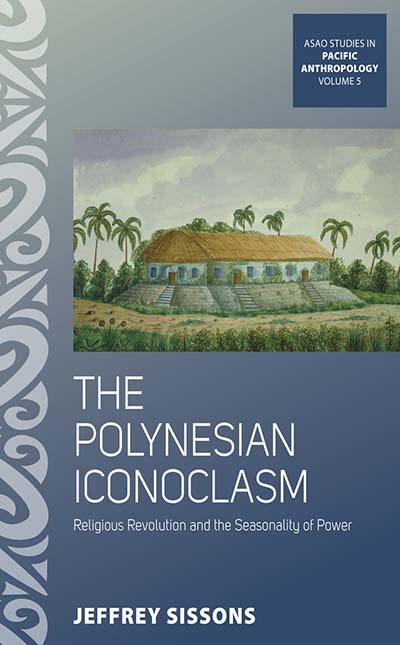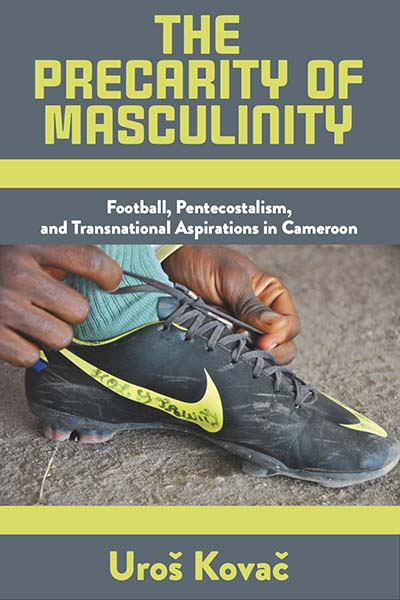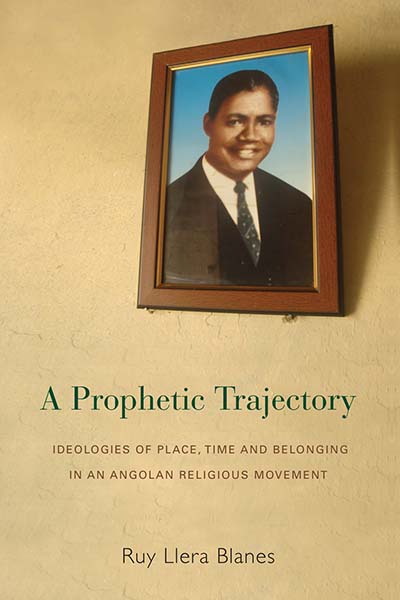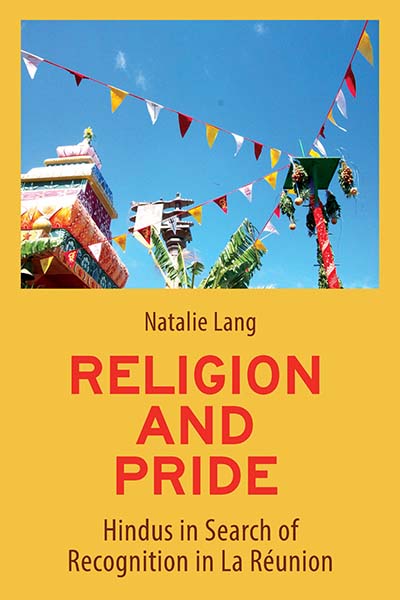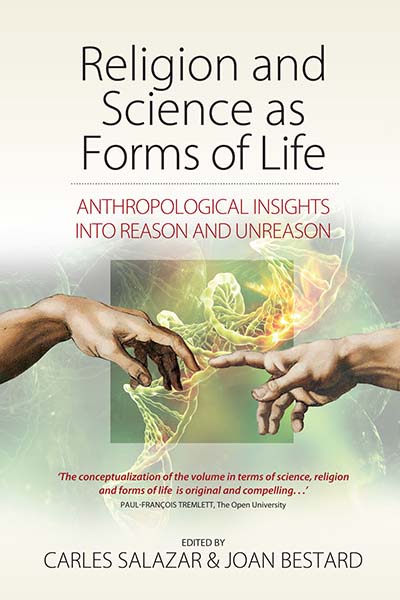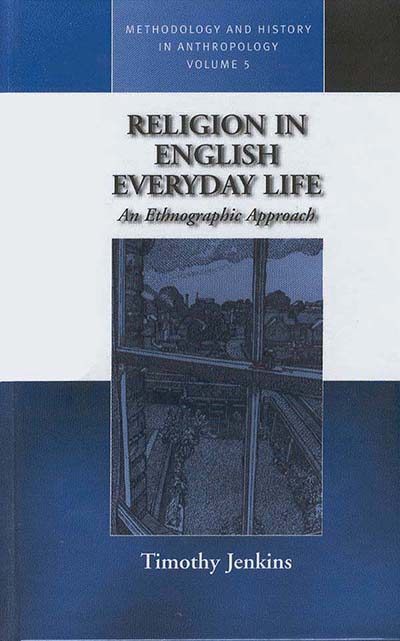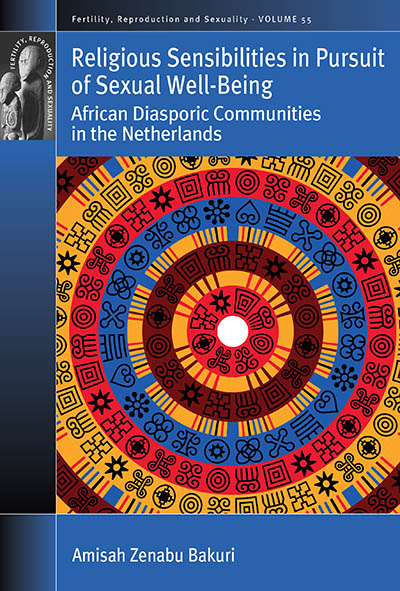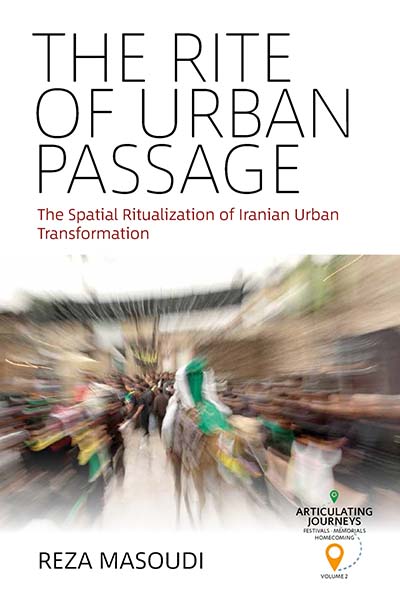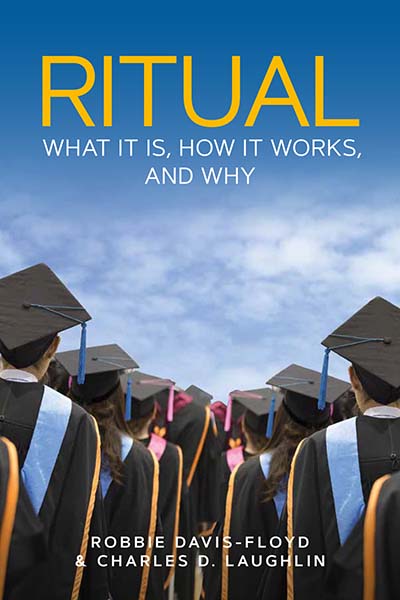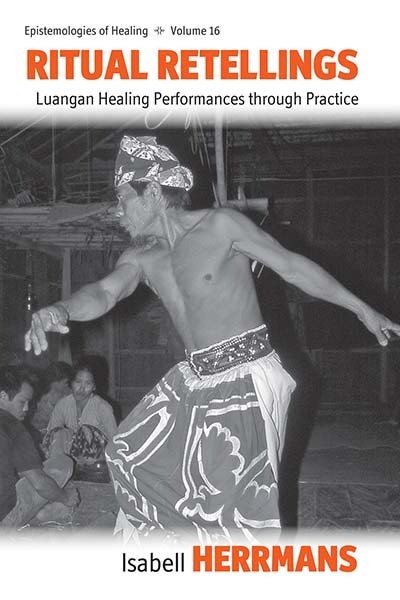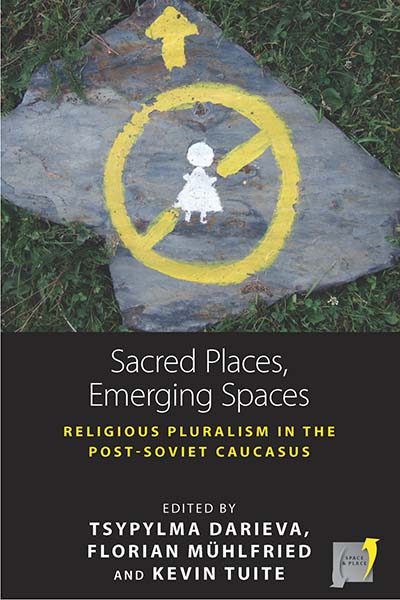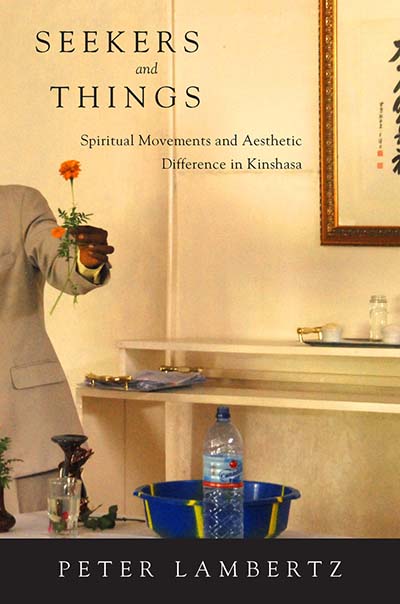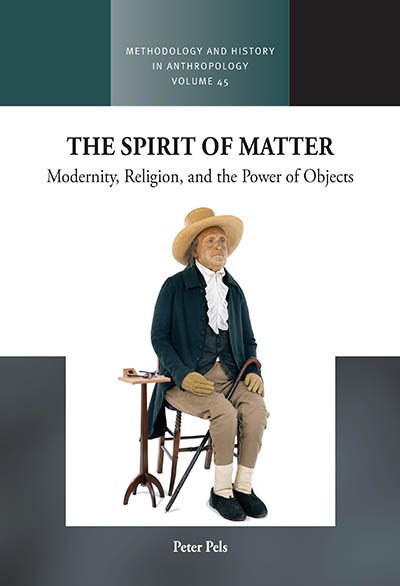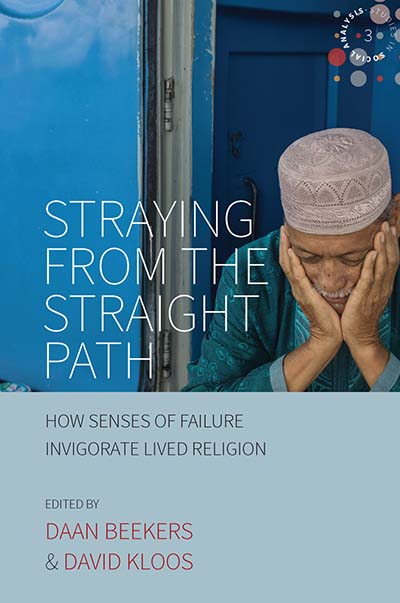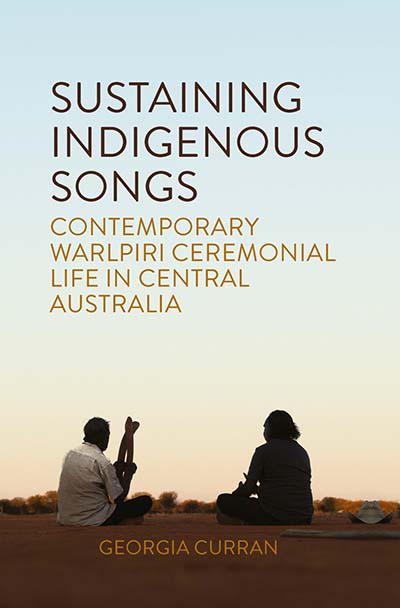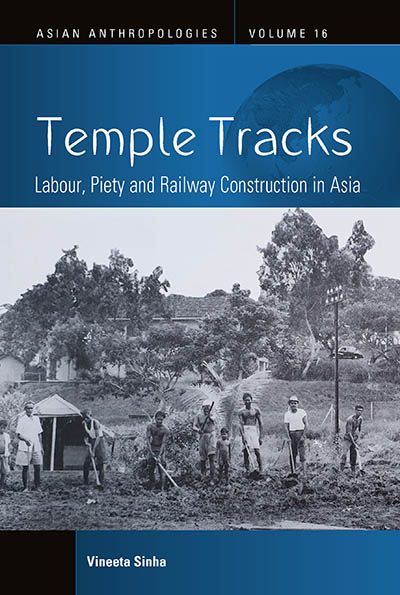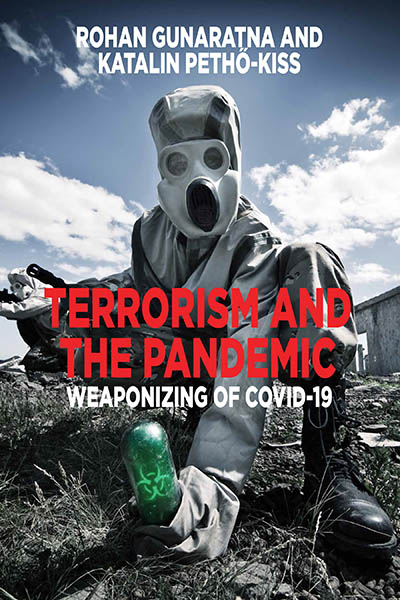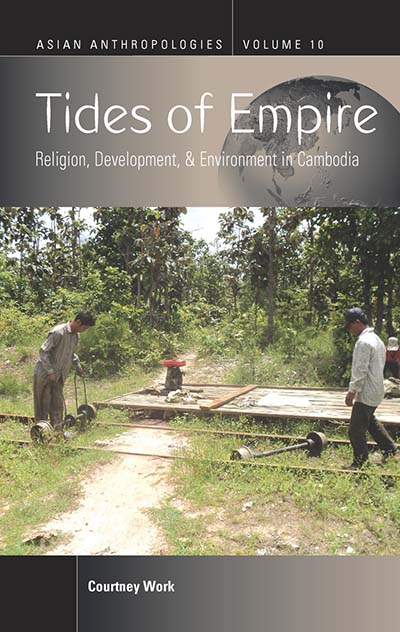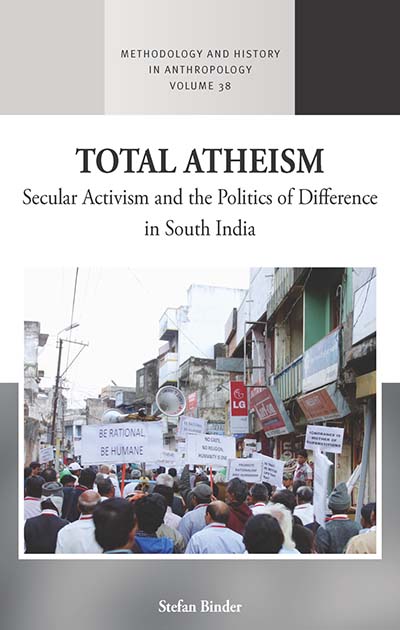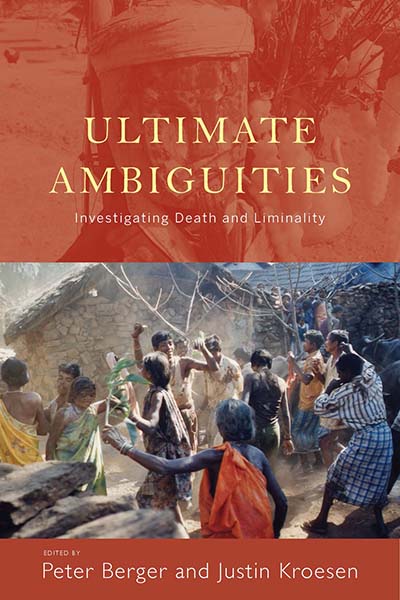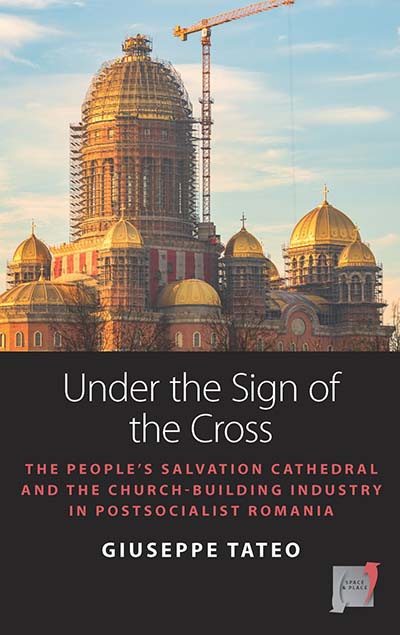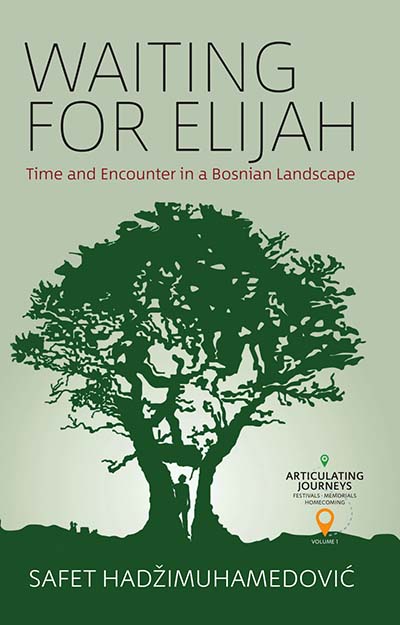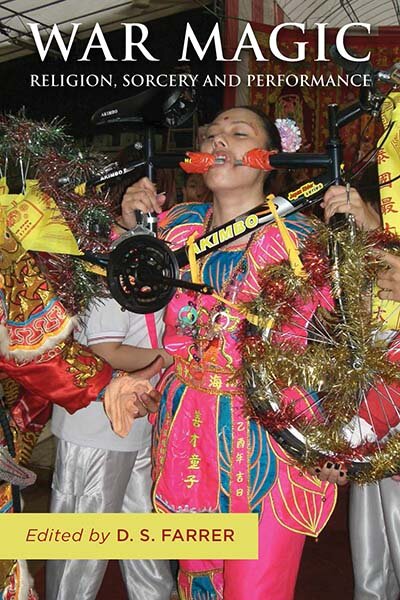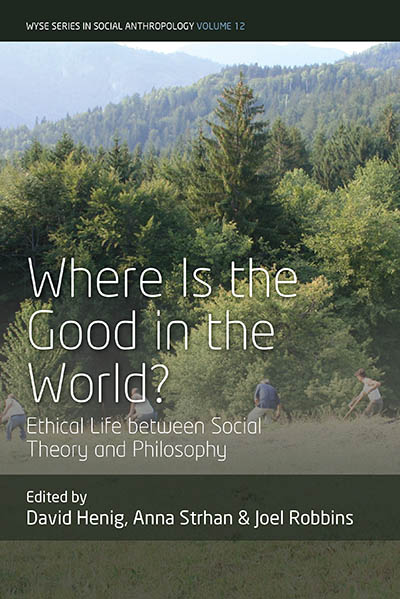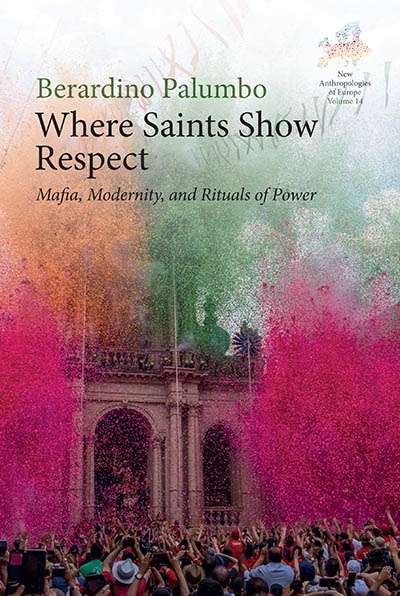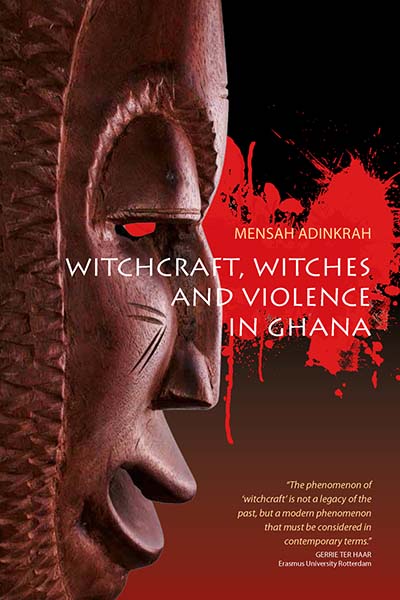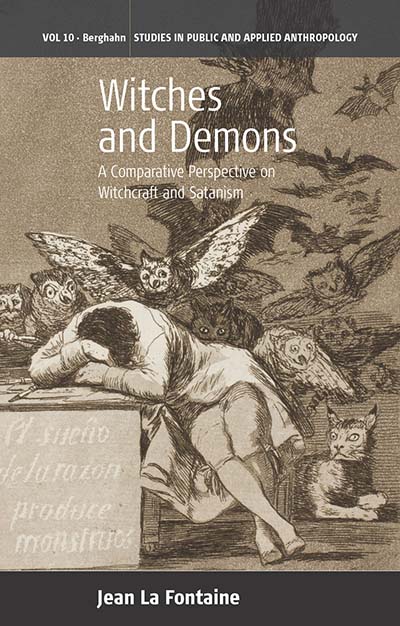Home -> Browse
-

Afropolitan Horizons
Essays toward a Literary Anthropology of Nigeria
Hannerz, U.
Nigeria is a country shaped by internal diversity and transnational connections, past and present. Leading Nigerian writers from Chinua Achebe, Amos Tutuola and Wole Soyinka to Chimamanda Ngozi Adichie and Teju Cole have portrayed these Nigerian issues, and have also written about some of the momentous events in Nigerian history. Afropolitan Horizons discusses their work alongside other novelists and commentators, as well as describing the ways in which Nigeria has appeared in foreign news reporting. It is all interwoven with the author’s own anthropological field research in a town in Central Nigeria.
Subjects: Anthropology (General) Literary Studies Anthropology of Religion
Area: Africa
-

Against Better Judgment
Akrasia in Anthropological Perspectives
McKearney, P. & Evans, N. H. A. (eds)
Anthropologists have long explained social behaviour as if people always do what they think is best. But what if most of these explanations only work because they are premised upon ignoring what philosophers call 'akrasia' – that is, the possibility that people might act against their better judgment? The contributors to this volume turn an ethnographic lens upon situations in which people seem to act out of line with what they judge, desire and intend. The result is a robust examination of how people around the world experience weaknesses of will, which speaks to debates in both the anthropology of ethics and moral philosophy.
Subjects: Anthropology (General) Anthropology of Religion Medical Anthropology
-

Agent of Change
The Deposition and Manipulation of Ash in the Past
Roth, B. J. & Adams, E. C. (eds)
Ash is an important and yet understudied aspect of ritual deposition in the archaeological record of North America. Ash has been found in a wide variety of contexts across many regions and often it is associated with rare or unusual objects or in contexts that suggest its use in the transition or transformation of houses and ritual features. Drawn from across the U.S. and Mesoamerica, the chapters in this volume explore the use, meanings, and cross-cultural patterns present in the use of ash. and highlight the importance of ash in ritual closure, social memory, and cultural transformation.
Subjects: Archaeology Anthropology (General) Anthropology of Religion
Area: North America
-

Animism beyond the Soul
Ontology, Reflexivity, and the Making of Anthropological Knowledge
Swancutt, K. & Mazard, M. (eds)
How might we envision animism through the lens of the ‘anthropology of anthropology’? The contributors to this volume offer compelling case studies that demonstrate how indigenous animistic practices, concepts, traditions, and ontologies are co-authored in highly reflexive ways by anthropologists and their interlocutors. They explore how native epistemologies, which inform anthropological notions during fieldwork, underpin the dialogues between researchers and their participants. In doing so, the contributors reveal ways in which indigenous thinkers might be influenced by anthropological concepts of the soul and, equally, how they might subtly or dramatically then transform those same concepts within anthropological theory.
Subjects: Anthropology (General) Anthropology of Religion
-

The Art of Fate Calculation
Practicing Divination in Taipei, Beijing, and Kaifeng
Homola, S.
From housewives to students and high-ranking officials, people from all social backgrounds in China and Taiwan visit fate calculation masters to learn about their destiny. How do clients assess the diviner’s skills? How does one become a fortune-teller? How is a person’s fate calculated? The Art of Fate Calculation explores how conceptions of fate circulate in Chinese and Taiwanese societies while resisting uniformization and institutionalization. This is not only due to the stigma of “superstition” but also to the internal dynamic of fate calculation practice and learning.
Subjects: Anthropology (General) Anthropology of Religion Sociology
Area: Asia
-

Articulate Necrographies
Comparative Perspectives on the Voices and Silences of the Dead
Panagiotopoulos, A. & Espírito Santo, D. (eds)
Going beyond the frameworks of the anthropology of death, Articulate Necrographies offers a dramatic new way of studying the dead and their interactions with the living. Traditional anthropology has tended to dichotomize societies where death “speaks” from those where death is “silent” – the latter is deemed “scientific” and the former “religious” or “magical”. The collection introduces the concept of “necrography” to describe the way death and the dead create their own kinds of biographies in and among the living, and asks what kinds of articulations and silences this in turn produces in the lives of those affected.
Subjects: Anthropology (General) Anthropology of Religion Heritage Studies Literary Studies
-

Asymmetrical Conversations
Contestations, Circumventions, and the Blurring of Therapeutic Boundaries
Naraindas, H., Quack, J., & Sax, W. S. (eds)
Ideas about health are reinforced by institutions and their corresponding practices, such as donning a patient's gown in a hospital or prostrating before a healing shrine. Even though we are socialized into regarding such ideologies as "natural" and unproblematic, we sometimes seek to bypass, circumvent, or even transcend the dominant ideologies of our cultures as they are manifested in the institutions of health care. The contributors to this volume describe such contestations and circumventions of health ideologies, and the blurring of therapeutic boundaries, on the basis of case studies from India, the South Asian Diaspora, and Europe, focusing on relations between body, mind, and spirit in a variety of situations. The result is not always the "live and let live" medical pluralism that is described in the literature.
Subjects: Medical Anthropology Anthropology of Religion
Areas: Asia Europe
-

Atlantic Perspectives
Places, Spirits and Heritage
Balkenhol, M., Blanes, R. L., & Sarró, R. (eds)
Focusing on mobility, religion, and belonging, the volume contributes to transatlantic anthropology and history by bringing together religion, cultural heritage and placemaking in the Atlantic world. The entanglements of these domains are ethnographically scrutinized to perceive the connections and disconnections of specific places which, despite a common history, are today very different in terms of secular regimes and the presence of religion in the public sphere. Ideally suited to a variety of scholars and students in different fields, Atlantic Perspectives will lead to new debates and conversations throughout the fields of anthropology, religion and history.
Subjects: Anthropology of Religion Anthropology (General) Heritage Studies
-

Becoming Vaishnava in an Ideal Vedic City
Fahy, J.
Becoming Vaishnava in an Ideal Vedic City centers on a growing multinational community of ISKCON (International Society for Krishna Consciousness) devotees in Mayapur, West Bengal. While ISKCON’s history is often presented in terms of an Indian guru ‘transplanting’ Indian spirituality to the West, this book focusses on the efforts to bring ISKCON back to India. Paying particular attention to devotees’ failure to consistently live up to ISKCON’s ideals and the ongoing struggle to realize the utopian vision of an ‘ideal Vedic city’, this book argues that the anthropology of ethics must account for how moral systems accommodate the problem of moral failure.
Subjects: Anthropology of Religion Anthropology (General)
Area: Asia
-

Being Bedouin Around Petra
Life at a World Heritage Site in the Twenty-First Century
Bille, M.
Petra, Jordan became a UNESCO World Heritage site in 1985, and the semi-nomadic Bedouin inhabiting the area were resettled as a consequence. The Bedouin themselves paradoxically became UNESCO Masterpieces of Oral and Intangible Heritage in 2005 for the way in which their oral traditions and everyday lives relate to the landscape they no longer live in. Being Bedouin Around Petra asks: How could this happen? And what does it mean to be Bedouin when tourism, heritage protection, national discourse, an Islamic Revival and even New Age spiritualism lay competing claims to the past in the present?
Subjects: Anthropology (General) Anthropology of Religion Heritage Studies
Area: Middle East & Israel
-

Being Godless
Ethnographies of Atheism and Non-Religion
Blanes, R. L. & Oustinova-Stjepanovic, G. (eds)
Drawing on ethnographic inquiry and the anthropological literature on doubt and atheism, this volume explores people's reluctance to pursue religion. The contributors capture the experiences of godless people and examine their perspectives on the role of religion in their personal and public lives. In doing so, the volume contributes to a critical understanding of the processes of disengagement from religion and reveals the challenges and paradoxes that godless people face.
Subjects: Anthropology (General) Anthropology of Religion
-

Beyond the Veil
Reflexive Studies of Death and Dying
Thamann, A. & Christodoulaki, K. M. (eds)
Looking at the cultural responses to death and dying, this collection explores the emotional aspects that death provokes in humans, whether it is disgust, fear, awe, sadness, anger, or even joy. Whereas most studies of death and dying treat the subject from an objective viewpoint, the scholars in this collection recognize their inherent connection with death which allows for a new and more personal form of study. More broadly, this collection suggests a new paradigm in the study of death and dying.
Subjects: Anthropology (General) Cultural Studies (General) Anthropology of Religion
-

Breathing Hearts
Sufism, Healing, and Anti-Muslim Racism in Germany
Selim, N.
Sufism is known as the mystical dimension of Islam. Breathing Hearts explores this definition to find out what it means to ‘breathe well’ along the Sufi path in the context of anti-Muslim racism. It is the first book-length ethnographic account of Sufi practices and politics in Berlin and describes how Sufi practices are mobilized in healing secular and religious suffering. It tracks the Desire Lines of multi-ethnic immigrants of color, and white German interlocutors to show how Sufi practices complicate the post secular imagination of healing in Germany.
Subjects: Anthropology (General) Anthropology of Religion Refugee and Migration Studies
Area: Germany
-

The Camino de Santiago
Curating the Pilgrimage as Heritage and Tourism
Murray, M.
Pilgrimage, as a global activity linked to the sacred, speaks to the special significance of persons, places and events. This book relates these sentiments to the curatorship of the Camino de Santiago that comprises a lattice of European pilgrimage itineraries converging at Santiago de Compostela in northwest Spain. The detailed analysis focuses on the management of pilgrimage settings as heritage and tourism linked to the shrine of Saint James and gives particular attention to investment guidelines, land use planning regulations, environmental stewardship, information dissemination and museology.
Subjects: Heritage Studies Anthropology of Religion Anthropology (General)
Area: Southern Europe
-

Christianity, Colonialism and Indigenous History in French Polynesia
Advance into Past
Misaki, M.
In an increasingly modernised French Polynesian society, some Christians have been tackling contemporary social issues and repatriate traditional indigenous values . Pursuing the past in the present means grappling with ongoing existential issues as an indigenous people, such as the dismantling of the kinship community, the decline of domestic agriculture and the loss of indigenous cultural heritage. Māòhi Christians strive to reconnect with a perceived Indigenous, sacred past within a present they consider to be alienating. This book illustrates how indigenous Christians perceive social change and how their historical perceptions inform the creation of their own Christianity.
Subjects: Anthropology of Religion Colonial History Sociology
Area: Asia-Pacific
-

Contemporary Pagan and Native Faith Movements in Europe
Colonialist and Nationalist Impulses
Rountree, K. (ed)
Pagan and Native Faith movements have sprung up across Europe in recent decades, yet little has been published about them compared with their British and American counterparts. Though all such movements valorize human relationships with nature and embrace polytheistic cosmologies, practitioners’ beliefs, practices, goals, and agendas are diverse. Often side by side are groups trying to reconstruct ancient religions motivated by ethnonationalism—especially in post-Soviet societies—and others attracted by imported traditions, such as Wicca, Druidry, Goddess Spirituality, and Core Shamanism. Drawing on ethnographic cases, contributors explore the interplay of neo-nationalistic and neo-colonialist impulses in contemporary Paganism, showing how these impulses play out, intersect, collide, and transform.
Subjects: Anthropology (General) Anthropology of Religion
Area: Europe
-

Cosmos, Gods and Madmen
Frameworks in the Anthropologies of Medicine
Littlewood, R. & Lynch, R. (eds)
The social anthropology of sickness and health has always been concerned with religious cosmologies: how societies make sense of such issues as prediction and control of misfortune and fate; the malevolence of others; the benevolence (or otherwise) of the mystical world; local understanding and explanations of the natural and ultra-human worlds. This volume presents differing categorizations and conflicts that occur as people seek to make sense of suffering and their experiences. Cosmologies, whether incorporating the divine or as purely secular, lead us to interpret human action and the human constitution, its ills and its healing and, in particular, ways which determine and limit our very possibilities.
Subjects: Medical Anthropology Anthropology of Religion
-

Culture Change and Ex-Change
Syncretism and Anti-Syncretism in Bena, Eastern Highlands, Papua New Guinea
Knapp, R.
How is cultural change perceived and performed by members of the Bena Bena language group, who live in the Eastern Highlands of Papua New Guinea? In her analysis, Knapp draws upon existing bodies of work on ‘culture change’, ‘exchange’ and ‘person’ in Melanesia but brings them together in a new way by conjoining traditional models with theoretical approaches of the new Melanesian ethnography and with collaborative, reflexive and reverse anthropology.
Subjects: Anthropology (General) Cultural Studies (General) Anthropology of Religion
Area: Asia-Pacific
-

Death, Materiality and Mediation
An Ethnography of Remembrance in Ireland
Graham, B.
In Death, Materiality and Mediation, Barbara Graham analyzes a diverse range of objects associated with remembrance in both the public and private arenas through ethnography of communities on both sides of the Irish border. In doing so, she explores the materially mediated interactions between the living and the dead, revealing the physical, cognitive, emotional, and spiritual roles of the dead in contemporary communities. Through this study, Graham expands the concept of materiality to include narrative, song, senses, emotions, ephemera and embodied experience. She also examines how modern practices are informed by older beliefs and folk religion.
Subjects: Anthropology (General) Heritage Studies Anthropology of Religion
Area: Europe
-

The Devil is Disorder
Bodies, Spirits and Misfortune in a Trinidadian Village
Lynch, R.
What role might the Devil have in health and illness? The Devil is Disorder explores constructions of the body, health, illness and wider misfortune in a Trinidadian village where evangelical Christianity is growing in popularity. Based on long-term ethnography and locating the village in historical and global context, the book takes a nuanced cosmological approach to situate evangelical Christian understandings as shaping and being shaped by their context and, in the process, shaping individuals themselves. As people move from local to global subjects, health here stretches beyond being a matter of individual bodies and is connected to worldwide flows and networks, spirit entities, and expansive moral orders.
Subjects: Medical Anthropology Anthropology of Religion Sociology
Area: Latin America and the Caribbean
-

Difference and Sameness as Modes of Integration
Anthropological Perspectives on Ethnicity and Religion
Schlee, G. & Horstmann, A. (eds)
What does it mean to “fit in?” In this volume of essays, editors Günther Schlee and Alexander Horstmann demystify the discourse on identity, challenging common assumptions about the role of sameness and difference as the basis for inclusion and exclusion. Armed with intimate knowledge of local systems, social relationships, and the negotiation of people’s positions in the everyday politics, these essays tease out the ways in which ethnicity, religion and nationalism are used for social integration.
Subjects: Anthropology (General) Anthropology of Religion Peace and Conflict Studies
-

Durkheim in Dialogue
A Centenary Celebration of The Elementary Forms of Religious Life
Hausner, S. L. (ed)
One hundred years after the publication of the great sociological treatise, The Elementary Forms of Religious Life, this new volume shows how aptly Durkheim¹s theories still resonate with the study of contemporary and historical religious societies. The volume applies the Durkheimian model to multiple cases, probing its resilience, wondering where it might be tweaked, and asking which aspects have best stood the test of time. A dialogue between theory and ethnography, this book shows how Durkheimian sociology has become a mainstay of social thought and theory, pointing to multiple ways in which Durkheim¹s work on religion remains relevant to our thinking about culture.
Subjects: Sociology Anthropology (General) Anthropology of Religion
-

Emplaced Belief
Heritage and Religion Reconsidered
Johnston, J., Gibson, M., Hampson, J. & Whyte, N. (Eds.)
Emplaced Belief is an innovative interdisciplinary volume that explores the conceptual and lived relations between the academic fields of religion and heritage. The Contributors adopt a holistic approach to consider emplacement — a broad interrelation of objects, peoples, histories and places — in the analysis of relations between religion and heritage. To be ‘emplaced’ is to be situated, yet such positioning is the result of multiple conscious and unconscious forces, agencies, discourses, and epistemologies. The volume’s title refers not only to physical locations of import, but also to the role of cultural practices and religious epistemologies in the establishment of religious heritage: the act of emplacement. That is, the religious, social, political and cultural practices that denote ‘heritage’ and the dynamics that revise, reinforce, or remove any such attribution.
Subjects: Heritage Studies Anthropology of Religion History (General) Cultural Studies (General)
-

Engaging Evil
A Moral Anthropology
Olsen, W. C. & Csordas, T. J. (eds)
Anthropologists have expressed wariness about the concept of evil even in discussions of morality and ethics, in part because the concept carries its own cultural baggage and theological implications in Euro-American societies. Addressing the problem of evil as a distinctly human phenomenon and a category of ethnographic analysis, this volume shows the usefulness of engaging evil as a descriptor of empirical reality where concepts such as violence, criminality, and hatred fall short of capturing the darkest side of human existence.
Subjects: Theory and Methodology Sociology Anthropology of Religion
-

Entrepreneurs of Identity
The Islamic State’s Symbolic Repertoire
Günther, C.
Describing the Islamic State’s ideologues as ‘entrepreneurs of identity’, this book explores how the group defined categories of social identity and used them as tools of communicative and cognitive structuring. Based on a wide dossier of original texts, speeches, images, and videos, the book examines how these ideologues have built a symbolic repertoire around the black flag as well as ideas and social practices such as the dictum to command good and forbid wrong, the supervision of public behaviour, and the oath of allegiance to the Caliph.
Subjects: Anthropology of Religion Political and Economic Anthropology Peace and Conflict Studies
Area: Middle East & Israel
-

Evil Eye in Christian Orthodox Society
A Journey from Envy to Personhood
Souvlakis, N.
Evil eye is a phenomenon observed globally and has to do with the misfortune and calamities that we can cause to someone else out of jealousy of their possessions. The book engages with evil eye beliefs in Corfu and investigates the Christian Orthodox influences on the phenomenon and how it affects individuals’ reactions to it. Developing an interdisciplinary dialogue, it offers a fresh view of evil eye as a facilitator of wellbeing rather than a generator of calamities.
Subjects: Anthropology of Religion Anthropology (General)
Area: Southern Europe
-

Evil Spirits and Rocket Debris
In Search of Lost Souls in Siberia
Broz, L.
The Altai Republic in southern Siberia is renowned for excavations of frozen mummies from high-altitude burial sites. Less well-known is the fact that it hosts fallout zones for the second stages of rockets launched from the Baikonur cosmodrome. Local inhabitants blame ‘evil spirits’ released by archaeological work and toxic fuel from rocket debris for their misfortunes. This book explores the divergent fates of such claims when confronted with state-fostered ‘rationalisms’ of science and governance.
Subjects: Anthropology (General) Anthropology of Religion Sociology
Area: Asia
-

Facing Discrimination
Religion and Agency in Contemporary European Contexts
Lems, J. & Planet Contreras, A. (eds)
Across Europe, racialised groups and other minorities are often subject to discriminatory policies and practices. Facing Discrimination offers insight into the dynamics of religious beliefs and practices among those who are discriminated against, showing how religion as a source of agency interacts with processes of marginalization. Six micro-level studies from Spain, Portugal and the Netherlands examine stigmatised groups and individuals, analysing how religious involvement in its multiple forms and interpretations, affects the capacity to respond to exclusion and shape the acceptance or rejection of imposed categories.
Subjects: Anthropology of Religion Political and Economic Anthropology
Area: Europe
-

Faithfully Urban
Pious Muslims in a German City
Kuppinger, P.
In the southern German city of Stuttgart lives a pious Muslim population that has merged with the local population to create a meaningful shared existence. In this ethnographic account, the author introduces and examines the lives of ordinary residents, neighborhoods, and mosque communities to analyze moments and spaces where Muslims and non-Muslims engage with each other and accommodate their respective needs. These accounts show that even in the face of resentment and discrimination, this pious population has indeed become an integral part of the urban community.
Subjects: Urban Studies Anthropology of Religion
Area: Germany
-

The Familial Occult
Explorations at the Margins of Critical Autoethnography
Coțofană, A. (ed)
The Familial Occult addresses the presence of occult experiences in some scholars' families and how that has affected their epistemological and ontological worlds, as well as their identities as scholars. Those with backgrounds in the familial occult often experience a series of conflicting relationships and different ways of interacting with binaries such as the subjective and objective, a powerful conceptual couple still governing academic thinking. While much has been written on encountering the occult in fieldwork or becoming an apprentice in an occult practice, little yet has been published in the academic literature about growing up with the occult.
Subjects: Anthropology (General) Sociology Anthropology of Religion
-

Fate Calculation Experts
Diviners Seeking Legitimation in Contemporary China
Li, G.
Having long been stigmatized as an immoral and even illegal “superstition”, the popular practice of divination is experiencing a revival in contemporary China. Fate Calculation Experts explores how diviners attempt to achieve legitimation in a society which identifies strongly with modernity, science, and rationality. As well as associating with modern knowledge production systems, diviners build a positive social image for their occupation via claims to moral authority and appeals to “tradition”. Beyond matters of image management, diviners’ efforts towards legitimation also figure in the social relationships and fundamental cultural values they develop in their practice.
Subjects: Anthropology (General) Anthropology of Religion
Area: Asia-Pacific
-

Fire on the Island
Fear, Hope and a Christian Revival in Vanuatu
Bratrud, T.
In 2014, the island of Ahamb in Vanuatu became the scene of a startling Christian revival movement led by thirty children with ‘spiritual vision’. However, it ended dramatically when two men believed to be sorcerers and responsible for much of the society’s problems were hung by persons fearing for the island’s future security. Based on twenty months of ethnographic fieldwork on Ahamb between 2010 and 2017, this book investigates how upheavals like the Ahamb revival can emerge to address and sometimes resolve social problems, but also carry risks of exacerbating the same problems they arise to address.
Subjects: Anthropology of Religion Anthropology (General)
Area: Asia-Pacific
-

Francophone Migrations, French Islam and Wellbeing
The Soninké Foyer in Paris
Accoroni, D.
Addressing several issues of significance in the fields of Anthropology of Migration, Politics of Healthcare, Religious and Francophone Studies, this book pursues an unprecedented line of research by bringing to the fore the geopolitical dimension of francophonie, understood as a political construct, as much as a cultural, artistic and a linguistic space, with French as common language. The book is based on participant observation carried out in Paris in a foyer among Soninké migrants, the principal ethnographic focus, and at the secondary field-site based at the Mouride Islamic Centre of Taverny, which serves to show an important facet of the so-called Francophone Islam.
Subjects: Anthropology (General) Refugee and Migration Studies Anthropology of Religion
Area: France
-

A Goddess in Motion
Visual Creativity in the Cult of María Lionza
Canals, R.
The current practice of the cult of María Lionza is one of the most important and yet unexplored religious practices in Venezuela. Based on long-term fieldwork, this book explores the role of images and visual culture within the cult. By adopting a relational approach, A Goddess in Motion shows how the innumerable images of this goddess—represented as an Indian, white or mestizo woman—move constantly from objects to bodies, from bodies to dreams, and from the religion domain to the art world. In short, this book is a fascinating study that sheds light on the role of visual creativity in contemporary religious manifestations.
Subjects: Anthropology of Religion Anthropology (General) Cultural Studies (General)
Area: Latin America and the Caribbean
-

Going to Pentecost
An Experimental Approach to Studies in Pentecostalism
Eriksen, A. Blanes, R. L., MacCarthy, M.
Co-authored by three anthropologists with long–term expertise studying Pentecostalism in Vanuatu, Angola, and Papua New Guinea/the Trobriand Islands respectively, Going to Pentecost offers a comparative study of Pentecostalism in Africa and Melanesia, focusing on key issues as economy, urban sociality, and healing. More than an ordinary comparative book, it recognizes the changing nature of religion in the contemporary world – in particular the emergence of “non-territorial” religion (which is no longer specific to places or cultures) – and represents an experimental approach to the study of global religious movements in general and Pentecostalism in particular.
Subjects: Anthropology (General) Anthropology of Religion
Areas: Africa Asia-Pacific
-

Holistic Anthropology
Emergence and Convergence
Parkin, D. & Ulijaszek, S. (eds)
Given the broad reach of anthropology as the science of humankind, there are times when the subject fragments into specialisms and times when there is rapprochement. Rather than just seeing them as reactions to each other, it is perhaps better to say that both tendencies co-exist and that it is very much a matter of perspective as to which is dominant at any moment. The perspective adopted by the contributors to this volume is that some anthropologists have, over the last decade or so, been paying considerable attention to developments in the study of social and biological evolution and of material culture, and that this has brought social, material cultural and biological anthropologists closer to each other and closer to allied disciplines such as archaeology and psychology.
A more eclectic anthropology once characteristic of an earlier age is thus re-emerging. The new holism does not result from the merging of sharply distinguished disciplines but from among anthropologists themselves who see social organization as fundamentally a problem of human ecology, and, from that, of material and mental creativity, human biology, and the co-evolution of society and culture. It is part of a wider interest beyond anthropology in the origins and rationale of human activities, claims and beliefs, and draws on inferential or speculative reasoning as well as ‘hard’ evidence. The book argues that, while usefully borrowing from other subjects, all such reasoning must be grounded in prolonged, intensive and linguistically-informed fieldwork and comparison.
Subjects: Theory and Methodology Anthropology of Religion
-

Illness and Enlightenment
Exploring Tibetan Perspectives on Madness in Text and Everyday Life
Deane, S.
Tibetan understandings of nyoné — ‘madness’— encompass a broad range of concepts. Perspectives on the causation and treatment of madness as an illness are informed by Tantric and medical understandings of mind-body structure and (dys)functioning, as well as people’s relationships with non-human entities. In addition, ‘madness’ may be seen as a sign of enlightenment in the case of some Tantric practitioners. Based on ethnographic fieldwork in the Tibetan region of Amdo in northwest China, as well as examination of Tibetan medical and religious texts, Illness and Enlightenment explores the multi-faceted concept of nyoné through key Tibetan concepts of wind, heart, and mind, as well as human-spirit relationships.
Subjects: Medical Anthropology Anthropology of Religion
Area: Asia
-

Imagining Bosnian Muslims in Central Europe
Representations, Transfers and Exchanges
Šístek, F. (ed)
As a Slavic-speaking religious and ethnic “Other” living just a stone’s throw from the symbolic heart of the continent, the Muslims of Bosnia and Herzegovina have long occupied a liminal space in the European imagination. To a significant degree, the wider representations and perceptions of this population can be traced to the reports of Central European—and especially Habsburg—diplomats, scholars, journalists, tourists, and other observers in the late nineteenth and early twentieth centuries. This volume assembles contributions from historians, anthropologists, political scientists, and literary scholars to examine the political, social, and discursive dimensions of Bosnian Muslims’ encounters with the West since the nineteenth century.
Subjects: History (General) Anthropology of Religion
Area: Central/Eastern Europe
-

Inhabiting Silence
An Anthropologist in the Cloister
Sbardella, F.
Monasteries are typically characterized by physical and symbolic limitations on access as they are usually known through written texts and accounts by nuns who live in that world but do not allow others to have access. This has often resulted in research based on indirect sources. This volume is the result of observant participation in which the ethnographer is a protagonist social actor in two French monasteries of Discalced Carmelite nuns. The author experiences and narrates details of their everyday life that usually remain unseen but contribute to shaping community-building processes and, at the same time, construe the religious woman.
Subjects: Anthropology of Religion Sociology
Area: France
-

Islam and New Kinship
Reproductive Technology and the Shariah in Lebanon
Clarke, M.
Assisted reproductive technologies such as in vitro fertilization have provoked global controversy and ethical debate. This book provides a groundbreaking investigation into those debates in the Islamic Middle East, simultaneously documenting changing ideas of kinship and the evolving role of religious authority in the region through a combination of in-depth field research in Lebanon and an exhaustive survey of the Islamic legal literature. Lebanon, home to both Sunni and Shiite Muslim communities, provides a valuable site through which to explore the overall dynamism and diversity of global Islamic debate. As this book shows, Muslim perspectives focus on the moral propriety of such controversial procedures as the use of donor sperm and eggs as well as surrogacy arrangements, which are allowed by some authorities using surprising and innovative legal arguments. These arguments challenge common stereotypes of the rigidity and conservatism of Islamic law and compel us to question conventional contrasts between ‘liberal’ and Islamic notions of moral freedom, as well as the epistemological assumptions of anthropology’s own ‘new kinship studies’. This book will be essential reading for anyone interested in contemporary Islam and the impact of reproductive technology on the global social imaginary.
Subjects: Medical Anthropology Anthropology of Religion Gender Studies and Sexuality
Area: Middle East & Israel
-

Jaguars of the Dawn
Spirit Mediumship in the Brazilian Vale do Amanhecer
Pierini, E.
The Brazilian Spiritualist Christian Order Vale do Amanhecer (Valley of the Dawn) is the place where the worlds of the living and the spirits merge and the boundaries between lives are regularly crossed. Drawing upon over a decade of extensive fieldwork in temples of the Amanhecer in Brazil and Europe, the author explores how mediums understand their experiences and how they learn to establish relationships with their spirit guides. She sheds light on the ways in which mediumistic development in the Vale do Amanhecer is used for therapeutic purposes and informs notions of body and self, of illness and wellbeing.
Subjects: Anthropology of Religion Medical Anthropology Sociology
Area: Latin America and the Caribbean
-

Learning Religion
Anthropological Approaches
Berliner, D. & Sarró, R. (eds)
As we enter the 21st century, it becomes increasingly difficult to envisage a world detached from religion or an anthropology blind to its study. Yet, how people become religious is still poorly studied. This volume gathers some of the most distinguished scholars in the field to offer a new perspective for the study of religion, one that examines the works of transmission and innovation through the prism of learning. They argue that religious culture is socially and dynamically constructed by agents who are not mere passive recipients but engaged in active learning processes. Finding a middle way between the social and the cognitive, they see learning religions not as a mechanism of “downloading” but also as a social process with its relational dimension.
Subjects: Anthropology of Religion Theory and Methodology Sociology
Areas: Asia Latin America and the Caribbean Asia-Pacific
-

Life with Durham Cathedral
A Laboratory of Community, Experience and Building
Calvert, A. J.
An ethnographic account of daily life in Durham Cathedral, this book examines the processes of negotiation and change between a community and their cathedral. Focusing on the role of sound, light, time, space, building and dwelling, the author argues that Durham Cathedral is much more than just a backdrop to everyday life. Rather, through the constant processes of negotiation and change, it is a fully engaged participant in the daily lives of those who use Durham Cathedral. As such, it is not a place in which life happens, but a place with which life happens.
Subjects: Heritage Studies Anthropology (General) Anthropology of Religion
Area: Northern Europe
-

The Living Ancestors
Shamanism, Cosmos and Cultural Change among the Yanomami of the Upper Orinoco
Jokic, Z.
This phenomenologically oriented ethnography focuses on experiential aspects of Yanomami shamanism, including shamanistic activities in the context of cultural change. The author interweaves ethnographic material with theoretical components of a holographic principle, or the idea that the “part is equal to the whole,” which is embedded in the nature of the Yanomami macrocosm, human dwelling, multiple-soul components, and shamans’ relationships with embodied spirit-helpers. This book fills an important gap in the regional study of Yanomami people, and, on a broader scale, enriches understanding of this ancient phenomenon by focusing on the consciousness involved in shamanism through firsthand experiential involvement.
Subjects: Anthropology (General) Anthropology of Religion
Area: Latin America and the Caribbean
-

Making Bodies Kosher
The Politics of Reproduction among Haredi Jews in England
Kasstan, B.
Minority populations are often regarded as being ‘hard to reach’ and evading state expectations of health protection. This ethnographic and archival study analyses how devout Jews in Britain negotiate healthcare services to preserve the reproduction of culture and continuity. This book demonstrates how the transformative and transgressive possibilities of technology reveal multiple pursuits of protection between this religious minority and the state. Making Bodies Kosher advances theoretical perspectives of immunity, and sits at the intersection of medical anthropology, social history and the study of religions.
Subjects: Medical Anthropology Jewish Studies Anthropology of Religion
Area: Northern Europe
-

Managing Sacralities
Competing and Converging Claims of Religious Heritage
Hemel, E. van den, Salemink, O., & Stengs, I. (eds)
What happens when religious sites, objects and practices become cultural heritage? What are —religious or secular—sources of expertise and authority that validate and regulate heritage sites, objects and practices? As cultural heritage becomes an increasingly popular and influential frame, these questions arise in diverse and challenging manners. The question who controls, manages, and frames religious heritage, and how, arises with particular urgency. Case studies from Denmark, the Netherlands, Poland, Portugal and the United Kingdom present an analysis of the paradoxes and challenges that arise when religious sites are transformed into heritage.
Subjects: Heritage Studies History (General) Anthropology of Religion
Area: Europe
-

Matter Out of Place
Anthropological Explorations of Bodies, Dirt and Morality
Lynch, R., Calabrese, J., & Littlewood, R. (eds)
Anthropologists often use ‘pollution’ to refer to social and individual challenges to a cultural idea of purity, which may be seen in terms of religious practice, foodstuffs and social differentiation. It has been used as a trope to explore ideas of dirt and place, moral inversion and reinforcement, disgust and taboo.
The book is an invitation to consider the continued relevance of Mary Douglas’ conceptualization of pollution and dirt as ‘matter out of place’ in relation to contemporary circumstances. Its ethnographic and theoretical contributions cover diverse contexts, ranging from Europe to Africa, the Caribbean, India and Outer Space.
Subjects: Anthropology (General) Anthropology of Religion Sociology
-

Mirrors of Passing
Unlocking the Mysteries of Death, Materiality, and Time
Seebach, S. & Willerslev, R. (eds)
Without exception, all people are faced with the inevitability of death, a stark fact that has immeasurably shaped societies and individual consciousness for the whole of human history. Mirrors of Passing offers a powerful window into this oldest of human preoccupations by investigating the interrelationships of death, materiality, and temporality across far-flung times and places. Stretching as far back as Ancient Egypt and Greece and moving through present-day locales as diverse as Western Europe, Central Asia, and the Arctic, each of the richly illustrated essays collected here draw on a range of disciplinary insights to explore some of the most fundamental, universal questions that confront us.
Subjects: Anthropology (General) Cultural Studies (General) Anthropology of Religion
-

Moebius Anthropology
Essays on the Forming of Form
Handelman, D., Shapiro, M. (ed), & Feldman, J. (ed)
Don Handelman’s groundbreaking work in anthropology is showcased in this collection of his most powerful essays, edited by Matan Shapiro and Jackie Feldman. The book looks at the intellectual and spiritual roots of Handelman’s initiation into anthropology; his work on ritual and on “bureaucratic logic”; analyses of cosmology; and innovative essays on Anthropology and Deleuzian thinking. Handelman reconsiders his theory of the forming of form and how this relates to a new theory of the dynamics of time. This will be the definitive collection of articles by one of the most important anthropologists of the late 20th Century.
Subjects: Theory and Methodology Anthropology of Religion
-

Mortuary Dialogues
Death Ritual and the Reproduction of Moral Community in Pacific Modernities
Lipset, D. & Silverman, E. K. (eds)
Mortuary Dialogues presents fresh perspectives on death and mourning across the Pacific Islands. Through a set of rich ethnographies, the book examines how funerals and death rituals give rise to discourse and debate about sustaining moral personhood and community amid modernity and its enormous transformations. The book’s key concept, “mortuary dialogue,” describes the different genres of talk and expressive culture through which people struggle to restore individual and collective order in the aftermath of death in the contemporary Pacific.
Subjects: Anthropology (General) Anthropology of Religion
Area: Asia-Pacific
-

New Perspectives on Moral Change
Anthropologists and Philosophers Engage with Transformations of Life Worlds
Eriksen, C. & Hämäläinen, N. (eds)
The world we live in is constantly changing. Climate change, transforming gender conceptions, emerging issues of food consumption, novel forms of family life and technological developments are altering central areas of our forms of life. This raises questions of how to cope with and understand the moral changes implicit in such alterations. This volume is the first to address moral change as such. It brings together anthropologists and philosophers to discuss how to study and theorize the change of norms, concepts, emotions, moral frameworks and forms of personhood.
Subjects: Anthropology (General) Anthropology of Religion
-

Nurturing the Other
First Contacts and the Making of Christian Bodies in Amazonia
Grotti, V.
Combining archival research, oral history and long-term ethnography, this book studies relations between Amerindians and outsiders, such as American missionaries, through a series of contact expeditions that led to the 'pacification' of three native Amazonian groups in Suriname and French Guiana. The author examines and contrasts Amerindian and non-Amerindian views on this process of social transformation through the lens of the body, notions of peacefulness and kinship, as well as native warfare and shamanism. The book addresses questions of change and continuity, and the little explored links between first contacts, capture and native conversion to Christianity in contemporary indigenous Amazonia.
Subjects: Anthropology (General) Colonial History Anthropology of Religion
Area: Latin America and the Caribbean
-

Of Life and Health
The Language of Art and Religion in an African Medical System
Tengan, A. B.
An anthropological study of the health system of the Dagara people of northern Ghana and southern Burkina Faso, Of Life and Health develops a cultural and epistemological lexicon of Dagara life by examining its religious, ritual, and artistic expressions. Consisting of ethnographic descriptions and analyses of six Dagara cultic institutions, each of which deals with different aspects of sustaining and transmitting life, the volume gives a holistic account of the Dagara knowledge system.
Subjects: Anthropology (General) Anthropology of Religion Medical Anthropology
Area: Africa
-

Other Worlds, Other Bodies
Embodied Epistemologies and Ethnographies of Healing
Pierini, E., Groisman, A., & Espírito Santo, D. (eds)
When approaching the multiplicity of the spiritual experiences of healing, ethnographers are often presented with ideas of the existence of “other” worlds that may intersect with the so-called “material” or “physical” worlds. This book addresses the density of ethnographic experience that can potentially decondition personal ontologies and epistemologies, unfolding a process of transformation, analogous to healing. Epistemological embodiment signals that personal scholarly experience of the “unknown”—be it in the form of trance, or as the embodiment of an “other”—shapes the concepts of healing, body, trance, self, and matter by which ethnographers craft out analysis.
Subjects: Anthropology of Religion Anthropology (General) Medical Anthropology
-

The Patient Multiple
An Ethnography of Healthcare and Decision-Making in Bhutan
Taee, J.
In the Himalayan Kingdom of Bhutan, medical patients engage a variety of healing practices to seek cures for their ailments. Patients use the expanding biomedical network and a growing number of traditional healthcare units, while also seeking alternative practices, such as shamanism and other religious healing, or even more provocative practices. The Patient Multiple delves into this healthcare complexity in the context of patients’ daily lives and decision-making processes, showing how these unique mountain cultures are finding new paths to good health among a changing and multifaceted medical topography.
Subjects: Anthropology (General) Medical Anthropology Anthropology of Religion
Area: Asia
-

Pilgrimage and Political Economy
Translating the Sacred
Coleman, S. & Eade, J. (eds)
Pilgrimage has always had a tendency to follow—and sometimes create—trade routes. This volume explores how wider factors behind transnational and global mobility have impacted on pilgrimage activity across the world, and examines the ways in which pilgrimage relates to migration, diaspora, and political cooperation or conflict across nation-states. Furthermore, it brings together case studies that explore forms of mobility where pilgrimage is juxtaposed, complements, or is in intimate association with other forms of movement.
Subjects: Anthropology (General) Anthropology of Religion Political and Economic Anthropology
-

The Polynesian Iconoclasm
Religious Revolution and the Seasonality of Power
Sissons, J.
Within little more than ten years in the early nineteenth century, inhabitants of Tahiti, Hawaii and fifteen other closely related societies destroyed or desecrated all of their temples and most of their god-images. In the aftermath of the explosive event, which Sissons terms the Polynesian Iconoclasm, hundreds of architecturally innovative churches — one the size of two football fields — were constructed. At the same time, Christian leaders introduced oppressive laws and courts, which the youth resisted through seasonal displays of revelry and tattooing. Seeking an answer to why this event occurred in the way that it did, this book introduces and demonstrates an alternative “practice history” that draws on the work of Marshall Sahlins and employs Bourdieu’s concepts of habitus, improvisation and practical logic.
Subjects: Anthropology of Religion Anthropology (General)
Area: Asia-Pacific
-

The Precarity of Masculinity
Football, Pentecostalism, and Transnational Aspirations in Cameroon
Kovač, U.
Since the 1990s, an increasing number of young men in Cameroon have aspired to play football as a career and a strategy to migrate abroad. Migration through the sport promises fulfillment of masculine dreams of sports stardom, as well as opportunities to earn a living that have been hollowed out by the country’s long economic stalemate. The aspiring footballers are increasingly turning to Pentecostal Christianity, which allows them to challenge common tropes of young men as stubborn and promiscuous, while also offering a moral and bodily regime that promises success despite the odds. Yet the transnational sports market is tough and unpredictable: it demands disciplined young bodies and introduces new forms of uncertainty. This book unpacks young Cameroonians' football dreams, Pentecostal faith, obligations to provide, and desires to migrate to highlight the precarity of masculinity in structurally adjusted Africa and neoliberal capitalism.
Subjects: Anthropology (General) Anthropology of Religion Gender Studies and Sexuality
Area: Africa
-

Prophetic Histories
Time, Theology, and Theocracy in Solomon Islands
Timmer, J.
On Malaita in Solomon Islands, an evangelical Israelite-inspired movement centers on a distinctive time-consciousness that reads the historical past and present as prophetic signs of an imminent future. This book examines how these ‘prophetic histories’ interweave biblical narrative, theological reflection, local accounts, kastom practice, spiritual journeys and Old-Testament political theory. Michael Maeliau, the movement’s foremost leader, casts the resulting stories as divine messages. His theological reasoning transcends time, space, hierarchy and surface identity, to uncover the true essence of Malaita and establish a theocracy on the island. At the movement’s core lies a prophetic order that integrates events, scripture and kastom while foregrounding the agency of God and divine revelations.
Subjects: Anthropology of Religion Development Studies
Area: Asia-Pacific
-

A Prophetic Trajectory
Ideologies of Place, Time and Belonging in an Angolan Religious Movement
Blanes, R. L.
Combining ethnographic and historical research conducted in Angola, Portugal, and the United Kingdom, A Prophetic Trajectory tells the story of Simão Toko, the founder and leader of one of the most important contemporary Angolan religious movements. The book explains the historical, ethnic, spiritual, and identity transformations observed within the movement, and debates the politics of remembrance and heritage left behind after Toko’s passing in 1984. Ultimately, it questions the categories of prophetism and charisma, as well as the intersections between mobility, memory, and belonging in the Atlantic Lusophone sphere.
Subjects: Anthropology of Religion Anthropology (General)
Area: Africa
-

Religion and Pride
Hindus in Search of Recognition in La Réunion
Lang, N.
Seeking recognition presents an important driving force in the making of religious minorities, as is shown in this study that examines current debates on religion, globalization, diaspora, and secularism through the lens of Hindus living in the French overseas department of La Réunion. Through the examination of religious practices and public performance, the author offers a compelling study of how the Hindus of the island assert pride in their religion as a means of gaining recognition, self-esteem, and social status.
Subjects: Anthropology of Religion Anthropology (General)
Area: Africa
-

Religion and Science as Forms of Life
Anthropological Insights into Reason and Unreason
Salazar, C. & Bestard, J. (eds)
The relationships between science and religion are about to enter a new phase in our contemporary world, as scientific knowledge has become increasingly relevant in ordinary life, beyond the institutional public spaces where it traditionally developed. The purpose of this volume is to analyze the relationships, possible articulations and contradictions between religion and science as forms of life: ways of engaging human experience that originate in particular social and cultural formations. Contributions use this theoretical and ethnographic research to explore different scientific and religious cultures in the contemporary world.
Subjects: Anthropology (General) Anthropology of Religion
-

Religion in English Everyday Life
An Ethnographic Approach
Jenkins, T.
Starting from an ethnographic appraisal of the place of religious practices, and thereby returning to an approach more recently neglected, this book offers a detailed understanding of English everyday life. Three contemporary case studies - the life of a country church, an annual procession by the churches in a Bristol suburb, a range of linked "spiritualist" beliefs - disclose the complex patterns and compulsion of ordinary lives, including both moral and historical dimensions: the distribution of reputation and conflict, and the continuities of place and identity. At the same time, the approach revises previous accounts of English social life by giving a nuanced description of the construction of local lives in interaction with their wider setting. It demonstrates the creation of local particularity under an outside gaze, showing how actors create and cope with the forces of "modernity." In addition to the original ethnographic descriptions, the book also contributes to the history and theory of the study of complex societies.
Subjects: Anthropology of Religion Theory and Methodology
Area: Europe
-

Religious Sensibilities in Pursuit of Sexual Well-Being
African Diasporic Communities in the Netherlands
Bakuri, A. Z.
The self-identifying Ghanaian-Dutch and Somali-Dutch communities residing in the Randstad area of the Netherlands are deeply impacted by religious beliefs and cultural factors in their approach towards sexual health practices, well-being and pleasure. This book shows how religious sensibilities shape the physical activities, beauty practices, and gendered roles that are adopted into the daily lives of these communities in pursuit of their sexual and general well-being. Through an ethnographic account, it explores and challenges the assumptions held around the complex relationship between religion and sexuality.
Subjects: Gender Studies and Sexuality Anthropology (General) Anthropology of Religion
Area: Northern Europe
-

The Rite of Urban Passage
The Spatial Ritualization of Iranian Urban Transformation
Masoudi, R.
The Iranian city experienced a major transformation when the Pahlavi Dynasty initiated a project of modernization in the 1920s. The Rite of Urban Passage investigates this process by focusing on the spatial dynamics of Muharram processions, a ritual that commemorates the tragic massacre of Hussein and his companions in 680 CE. In doing so, this volume offers not only an alternative approach to understanding the process of urban transformation, but also a spatial genealogy of Muharram rituals that provides a platform for developing a fresh spatial approach to ritual studies.
Subjects: Anthropology (General) Urban Studies Anthropology of Religion
Area: Middle East & Israel
-

Ritual
What It Is, How It Works, and Why
Davis-Floyd, R. & Laughlin, C. D.
Designed for both academic and lay audiences, this book identifies the characteristics of ritual and, via multiple examples, details how ritual works on the human body and brain to produce its often profound effects. These include enhancing courage, effecting healing, and generating group cohesion by enacting cultural—or individual—beliefs and values. It also shows what happens when ritual fails.
Subjects: Anthropology (General) Sociology Anthropology of Religion
-

Ritual Retellings
Luangan Healing Performances through Practice
Herrmans, I.
Belian is an exceptionally lively tradition of shamanistic curing rituals performed by the Luangans, a politically marginalized population of Indonesian Borneo. This volume explores the significance of these rituals in practice and asks what belian rituals do – socially, politically, and existentially – for particular people in particular circumstances. Departing from the conception that rituals exist as ethereal, liminal or insulated traditional domains, this volume demonstrates the importance of understanding rituals as emergent within their specific historical and social settings. It offers an analysis of a number of concrete ritual performances, exemplifying a diversity of ritual genres, stylistic modalities and sensual ambiences, from low-key, habitual affairs to drawn-out, crowd-seizing community rituals and innovative, montage-like cultural experiments.
Subjects: Medical Anthropology Anthropology of Religion
Area: Asia-Pacific
-

Sacred Places, Emerging Spaces
Religious Pluralism in the Post-Soviet Caucasus
Darieva, T., Mühlfried, F., & Tuite, K. (eds)
Though long-associated with violence, the Caucasus is a region rich with religious conviviality. Based on fresh ethnographies in Georgia, Armenia, Azerbaijan, and the Russian Federation, Sacred Places, Emerging Spaces discusses vanishing and emerging sacred places in the multi-ethnic and multi-religious post-Soviet Caucasus. In exploring the effects of de-secularization, growing institutional control over hybrid sacred sites, and attempts to review social boundaries between the religious and the secular, these essays give way to an emergent Caucasus viewed from the ground up: dynamic, continually remaking itself, within shifting and indefinite frontiers.
Subjects: Anthropology (General) Anthropology of Religion Sociology
Areas: Asia Central/Eastern Europe
-

Seekers and Things
Spiritual Movements and Aesthetic Difference in Kinshasa
Lambertz, P.
Focusing on the intricate presence of a Japanese new religion (Sekai Kyûseikyô) in the densely populated and primarily Christian environment of Kinshasa (DR Congo), this ethnographic study offers a practitioner-orientated perspective to create a localized picture of religious globalization. Guided by an aesthetic approach to religion, the study moves beyond a focus limited to text and offers insights into the role of religious objects, spiritual technologies and aesthetic repertoires in the production and politics of difference. The boundaries between non-Christian religious minorities and the largely Christian public sphere involve fears and suspicion of "magic" and "occult sciences".
Subjects: Anthropology (General) Anthropology of Religion Refugee and Migration Studies
Area: Africa
-

The Spirit of Matter
Modernity, Religion, and the Power of Objects
Pels, P.
A range of meaningful objects—exhibits of human remains or live people, fetishes, objects in a Catholic Museum, exotic photographs, commodities, and computers—demonstrate a subordinate modern consciousness about powerful objects and their ‘life’. The Spirit of Matter discusses these objects that move people emotionally but whose existence is often denied by modern wishful thinking of ‘mind over matter’. It traces this mindset back to Protestant Christian influences that were secularized in the course of modern and colonial history.
Subjects: Anthropology of Religion Archaeology Museum Studies
-

Straying from the Straight Path
How Senses of Failure Invigorate Lived Religion
Beekers, D. & Kloos, D. (eds)
If piety, faith, and conviction constitute one side of the religious coin, then imperfection, uncertainty, and ambivalence constitute the other. Yet, scholars tend to separate these two domains and place experiences of inadequacy in everyday religious life – such as a wavering commitment, religious negligence or weakness in faith – outside the domain of religion ‘proper.’
Straying from the Straight Path breaks with this tendency by examining how self-perceived failure is, in many cases, part and parcel of religious practice and experience. Responding to the need for comparative approaches in the face of the largely separated fields of the anthropology of Islam and Christianity, this volume gives full attention to moral failure as a constitutive and potentially energizing force in the religious lives of both Muslims and Christians in different parts of the world.
Subjects: Anthropology (General) Anthropology of Religion
-

Sustaining Indigenous Songs
Contemporary Warlpiri Ceremonial Life in Central Australia
Curran, G.
As an ethnography of Central Australian singing traditions and ceremonial contexts, this book asks questions about the vitality of the cultural knowledge and practices highly valued by Warlpiri people and fundamental to their cultural heritage. Set against a discussion of the contemporary vitality of Aboriginal musical traditions in Australia and embedded in the historical background of this region, the book lays out the features of Warlpiri songs and ceremonies, and centers on a focal case study of the Warlpiri Kurdiji ceremony to illustrate the modes in which core cultural themes are being passed on through song to future generations.
Subjects: Anthropology (General) Anthropology of Religion Cultural Studies (General)
Area: Asia-Pacific
-

Temple Tracks
Labour, Piety and Railway Construction in Asia
Sinha, V.
The notions of labour, mobility and piety have a complex and intertwined relationship. Using ethnographic methods and a historical perspective, Temple Tracks critically outlines the interlink of railway construction in colonial and post-colonial Asia, as well as the anthropology of infrastructure and transnational mobilities with religion. In Malaysia and Singapore, evidence of religion-making and railway-building from a colonial past is visible in multiple modes and media as memories, recollections and ‘traces’.
Subjects: Transport Studies Refugee and Migration Studies Anthropology of Religion
Area: Asia-Pacific
-

Terrorism and the Pandemic
Weaponizing of COVID-19
Gunaratna, R. & Pethö-Kiss, K.
The global pandemic has offered extraordinary opportunities for extremists and terrorists to mobilize themselves and revive as more powerful actors in the security landscape. But could these threat groups actually capitalize on the coronavirus crisis and advance their malevolent agendas? Utilizing the largest COVID-19-related terrorism database, the book presents an analysis built upon a quantitative and qualitative comparison between the nature of both the radical Islamist and the far-right-related threat in 2018 and 2020. It provides, for the first time, a true picture of novel trends since the pandemic outbreak.
Subjects: Political and Economic Anthropology Peace and Conflict Studies Anthropology of Religion
-

Tides of Empire
Religion, Development, and Environment in Cambodia
Work, C.
At the forested edge of Cambodia’s development frontier, the infrastructures of global development engulf the land and existing social practices like an incoming tide. Cambodia’s distinctive history of imperial surge and rupture makes it easier to see the remains of earlier tides, which are embedded in the physical landscape, and also floating about in the solidifying boundaries of religious, economic, and political classifications. Using stories from the hybrid population of settler-farmers, loggers, and soldiers, all cutting new social realities from the water and the land, this book illuminates the contradictions and continuities in what the author suggests is the final tide of empire.
Subjects: Anthropology (General) Development Studies Anthropology of Religion
Area: Asia-Pacific
-

Total Atheism
Secular Activism and the Politics of Difference in South India
Binder, S.
Exploring lived atheism in the South Indian states of Andhra Pradesh and Telangana, this book offers a unique insight into India’s rapidly transforming multi-religious society. It explores the social, cultural, and aesthetic challenges faced by a movement of secular activists in their endeavors to establish atheism as a practical and comprehensive way of life. On the basis of original ethnographic material and engaged conceptual analysis, Total Atheism develops an alternative to Eurocentric accounts of secularity and critically revisits central themes of South Asian scholarship from the hitherto marginalized vantage point of radically secular and explicitly irreligious atheists in India.
Subjects: Anthropology of Religion Anthropology (General)
Area: Asia
-

Ultimate Ambiguities
Investigating Death and Liminality
Berger, P. & Kroesen, J. (eds)
Periods of transition are often symbolically associated with death, making the latter the paradigm of liminality. Yet, many volumes on death in the social sciences and humanities do not specifically address liminality. This book investigates these “ultimate ambiguities,” assuming they can pose a threat to social relationships because of the disintegrating forces of death, but they are also crucial periods of creativity, change, and emergent aspects of social and religious life. Contributors explore death and liminality from an interdisciplinary perspective and present a global range of historical and contemporary case studies outlining emotional, cognitive, artistic, social, and political implications.
Subjects: Anthropology (General) Anthropology of Religion
-

Under the Sign of the Cross
The People’s Salvation Cathedral and the Church-Building Industry in Postsocialist Romania
Tateo, G.
Based on extensive ethnographic research, this book delves into the thriving industry of religious infrastructure in Romania, where 4,000 Orthodox churches and cathedrals have been built in three decades. Following the construction of the world’s highest Orthodox cathedral in Bucharest, the book brings together sociological and anthropological scholarship on eastern Christianity, secularization, urban change and nationalism. Reading postsocialism through the prism of religious change, the author argues that the emergence of political, entrepreneurial and intellectual figures after 1990 has happened ‘under the sign of the cross’.
Subjects: Anthropology of Religion Anthropology (General) Urban Studies
Area: Central/Eastern Europe
-

Waiting for Elijah
Time and Encounter in a Bosnian Landscape
HadžiMuhamedović, S.
Waiting for Elijah is an intimate portrait of time-reckoning, syncretism, and proximity in one of the world’s most polarized landscapes, the Bosnian Field of Gacko. Centered on the shared harvest feast of Elijah’s Day, the once eagerly awaited pinnacle of the annual cycle, the book shows how the fractured postwar landscape beckoned the return of communal life that entails such waiting. This seemingly paradoxical situation—waiting to wait—becomes a starting point for a broader discussion on the complexity of time set between cosmology, nationalism, and embodied memories of proximity.
Subjects: Anthropology (General) Anthropology of Religion Refugee and Migration Studies
Area: Central/Eastern Europe
-

War Magic
Religion, Sorcery, and Performance
Farrer, D. S. (ed)
This compelling volume explores how war magic and warrior religion unleash the power of the gods, demons, ghosts, and the dead. Documenting war magic and warrior religion as they are performed in diverse cultures and across historical time periods, this volume foregrounds embodiment, practice, and performance in anthropological approaches to magic, sorcery, shamanism, and religion. The authors go beyond what magic ‘represents’ to consider what magic does. From Chinese exorcists, Javanese spirit siblings, and black magic in Sumatra to Tamil Tiger suicide bombers, Chamorro spiritual re-enchantment, tantric Buddhist war magic, and Yanomami dark shamans, religion and magic are re-evaluated not just from the practitioner’s perspective but through the victim’s lived experience. These original investigations reveal a nuanced approach to understanding social action, innovation, and the revitalization of tradition in colonial and post-colonial societies undergoing rapid social transformation.
Subjects: Anthropology (General) Anthropology of Religion Performance Studies
-

Where is the Good in the World?
Ethical Life between Social Theory and Philosophy
Henig, D., Strhan, A., & Robbins, J. (eds)
Bringing together contributions from anthropology, sociology, religious studies, and philosophy, along with ethnographic case studies from diverse settings, this volume explores how different disciplinary perspectives on the good might engage with and enrich each other. The chapters examine how people realize the good in social life, exploring how ethics and values relate to forms of suffering, power and inequality, and, in doing so, demonstrate how focusing on the good enhances social theory. This is the first interdisciplinary engagement with what it means to study the good as a fundamental aspect of social life.
Subjects: Anthropology (General) Sociology Anthropology of Religion
-

Where Saints Show Respect
Mafia, Modernity, and Rituals of Power
Palumbo, B.
Where Saints Show Respect reveals the penetration of mafia values in Sicilian society. Instead of focusing on sensational criminality, this study considers rituals through which local society learns deep respect – sometimes fearful, but often playful or pious – for those values and their enforcers. State and Church misconstrue these values as vestiges of a society morally damned and left behind in a pagan past. This study draws on three decades of ethnographic research to explore a strikingly different Sicily from the self-congratulatory version of government and religious leaders, where a seemingly obscure set of rural practices offers a critical perspective on modernity itself.
Subjects: Political and Economic Anthropology Sociology Anthropology of Religion
Area: Southern Europe
-

Witchcraft, Witches, and Violence in Ghana
Adinkrah, M.
Witchcraft violence is a feature of many contemporary African societies. In Ghana, belief in witchcraft and the malignant activities of putative witches is prevalent. Purported witches are blamed for all manner of adversities including inexplicable illnesses and untimely deaths. As in other historical periods and other societies, in contemporary Ghana, alleged witches are typically female, elderly, poor, and marginalized. Childhood socialization in homes and schools, exposure to mass media, and other institutional mechanisms ensure that witchcraft beliefs are transmitted across generations and entrenched over time. This book provides a detailed account of Ghanaian witchcraft beliefs and practices and their role in fueling violent attacks on alleged witches by aggrieved individuals and vigilante groups.
Subjects: Anthropology (General) Anthropology of Religion Gender Studies and Sexuality
Area: Africa
-

Witches and Demons
A Comparative Perspective on Witchcraft and Satanism
La Fontaine, J.
Devil worship, black magic, and witchcraft have long captivated anthropologists as well as the general public. In this volume, Jean La Fontaine explores the intersection of expert and lay understandings of evil and the cultural forms that evil assumes. The chapters touch on public scares about devil-worship, misconceptions about human sacrifice and the use of body parts in healing practices, and mistaken accusations of children practicing witchcraft. Together, these cases demonstrate that comparison is a powerful method of cultural understanding, but warns of the dangers and mistaken conclusions that untrained ideas about other ways of life can lead to.
Subjects: Anthropology (General) Anthropology of Religion
Area: Europe


